Lecture 22
set and defaultdict
MCS 275 Spring 2021
Emily Dumas
Lecture 22: set and defaultdict
Course bulletins:
- I hope to have Project 3 ready by Monday. It is due March 19.
- Thursday discussion students: Please attempt problem 1 of Worksheet 8 before discussion.
Plan
- Wrap up trees unit
- Start language features unit
Named traversals
The three most-often used recursive traversals:
- preorder - Node, left, right. Used to copy BSTs.
- postorder - Left, right, node. Used to delete BSTs.
- inorder - Left, node, right. Used to turn BST into sorted list.
Note: They all visit left child before right child.
Preorder traversal
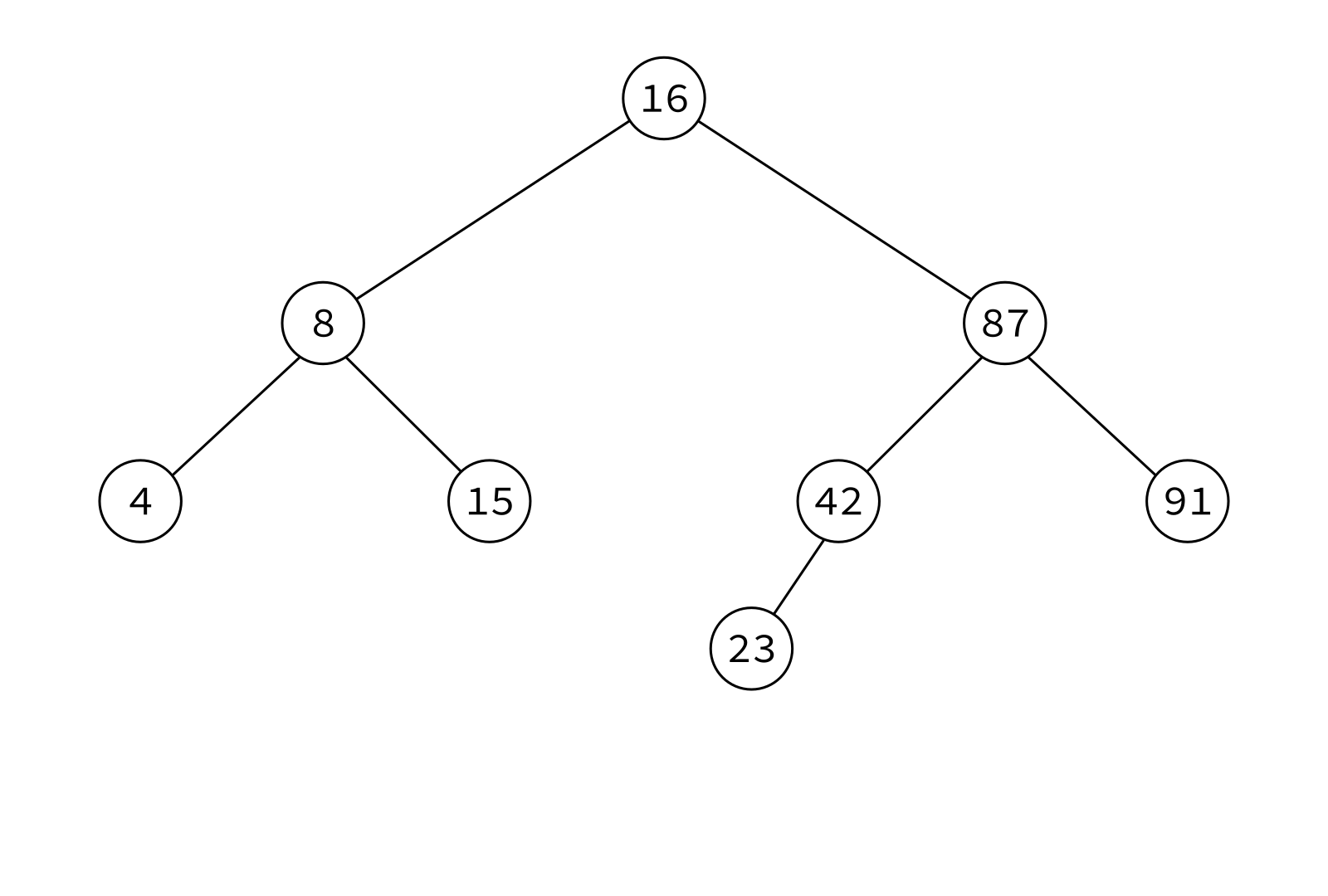
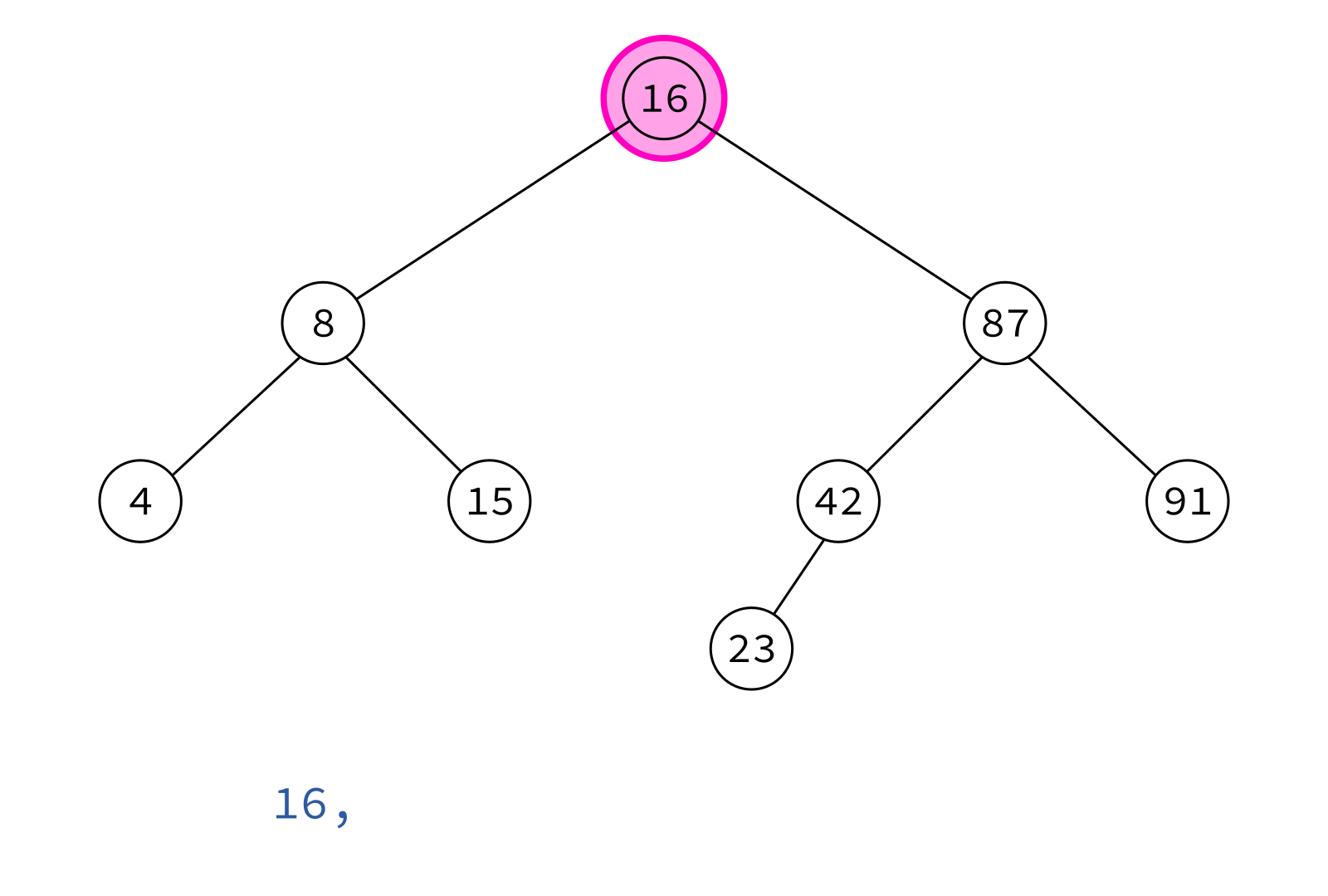
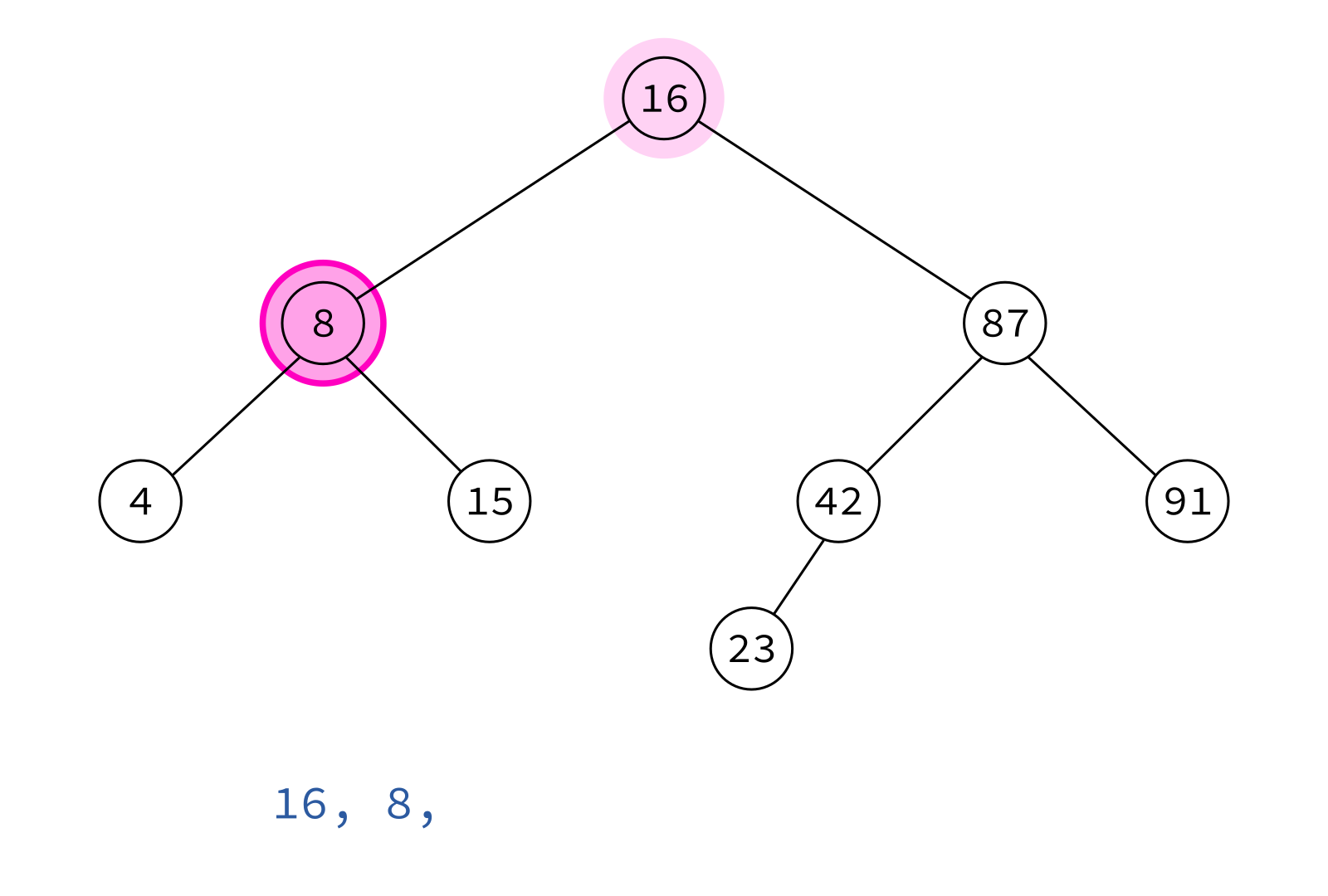
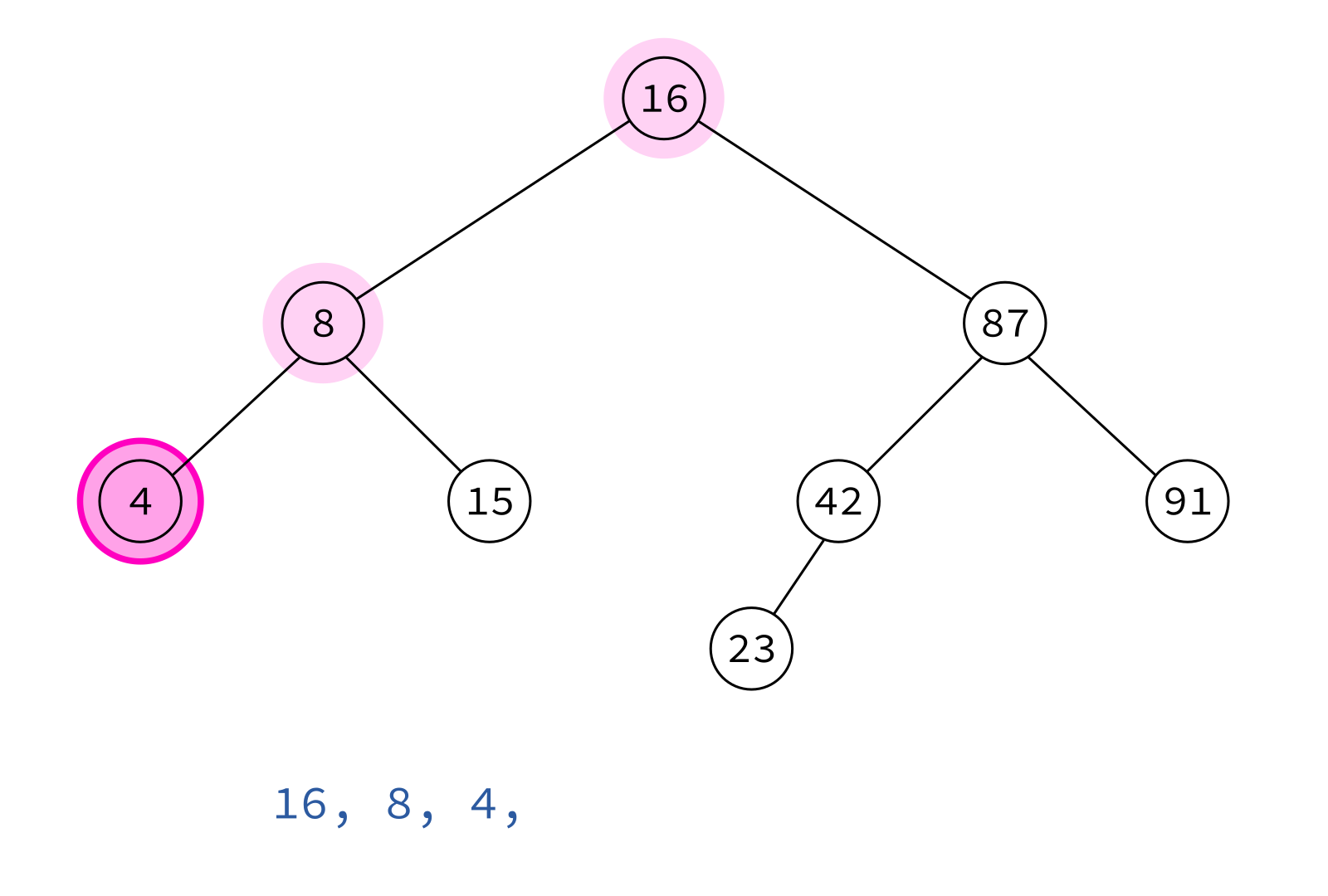
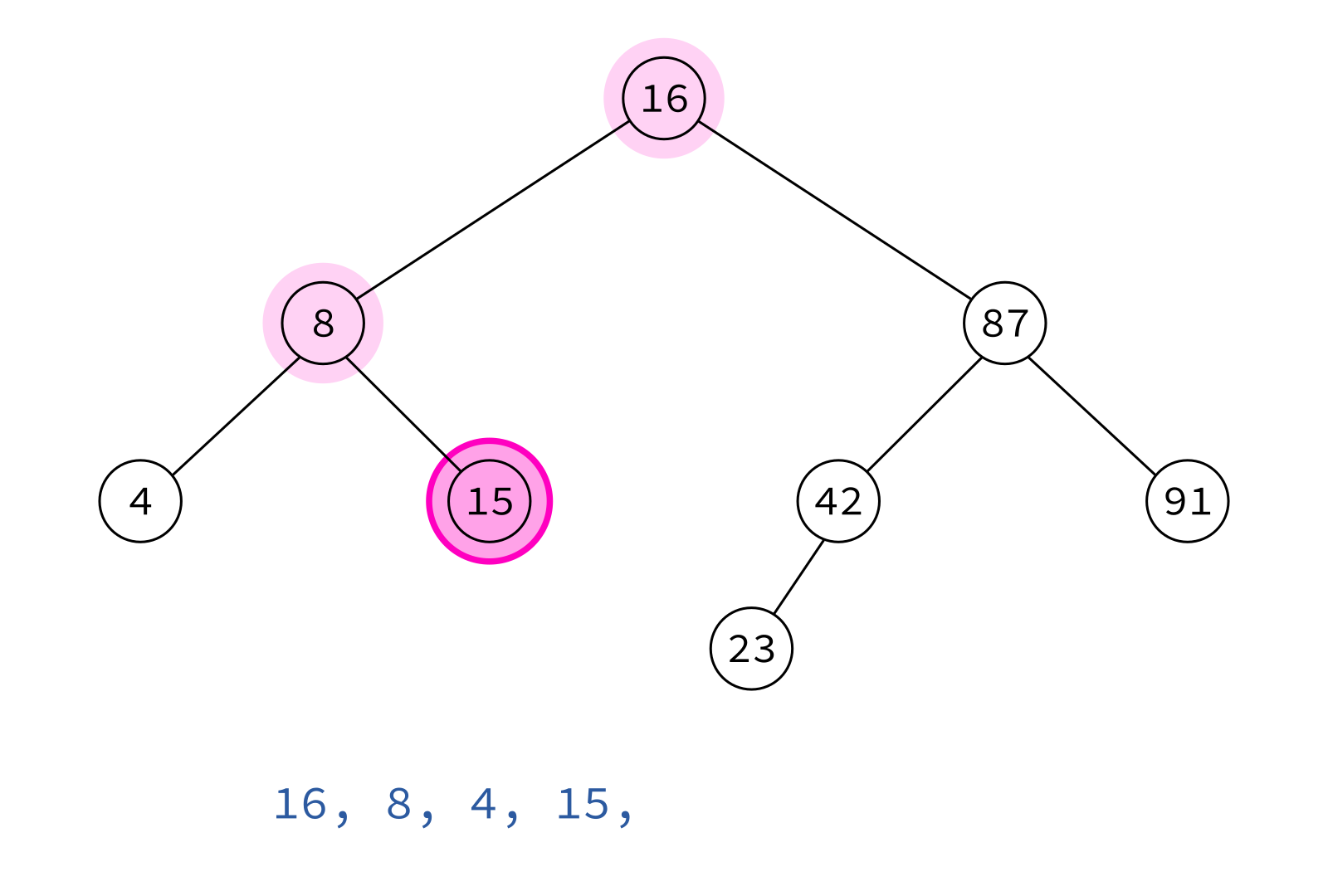
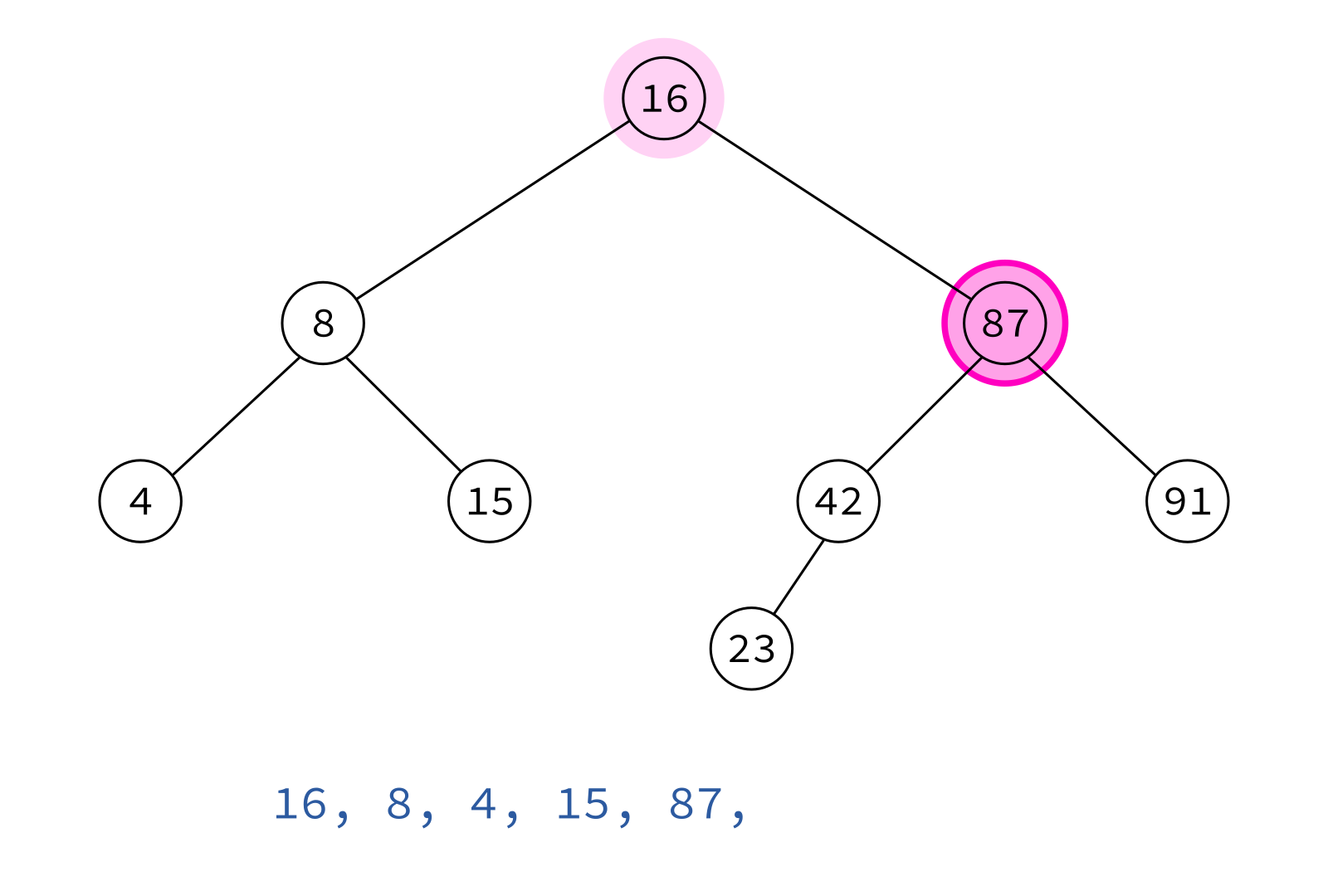
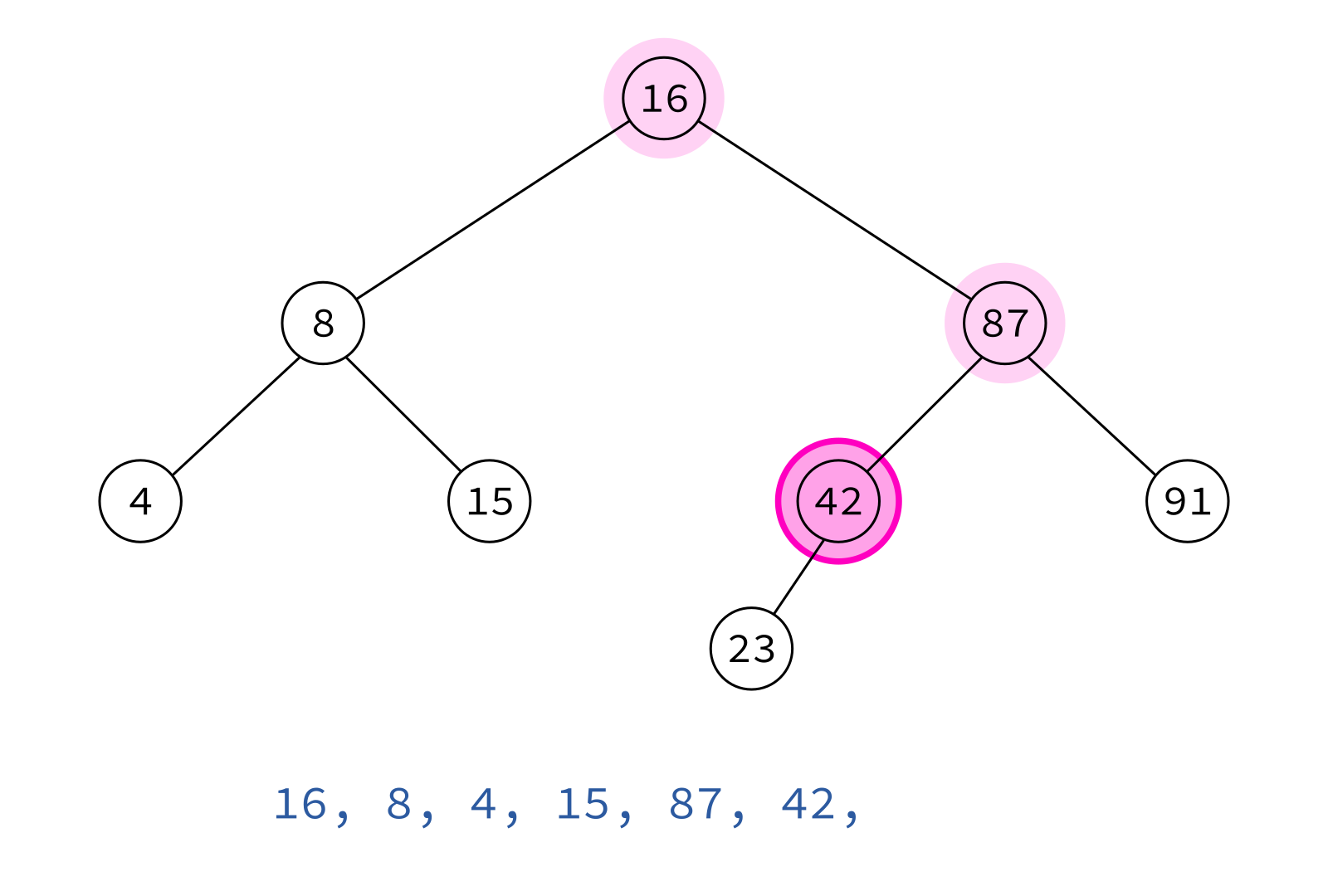
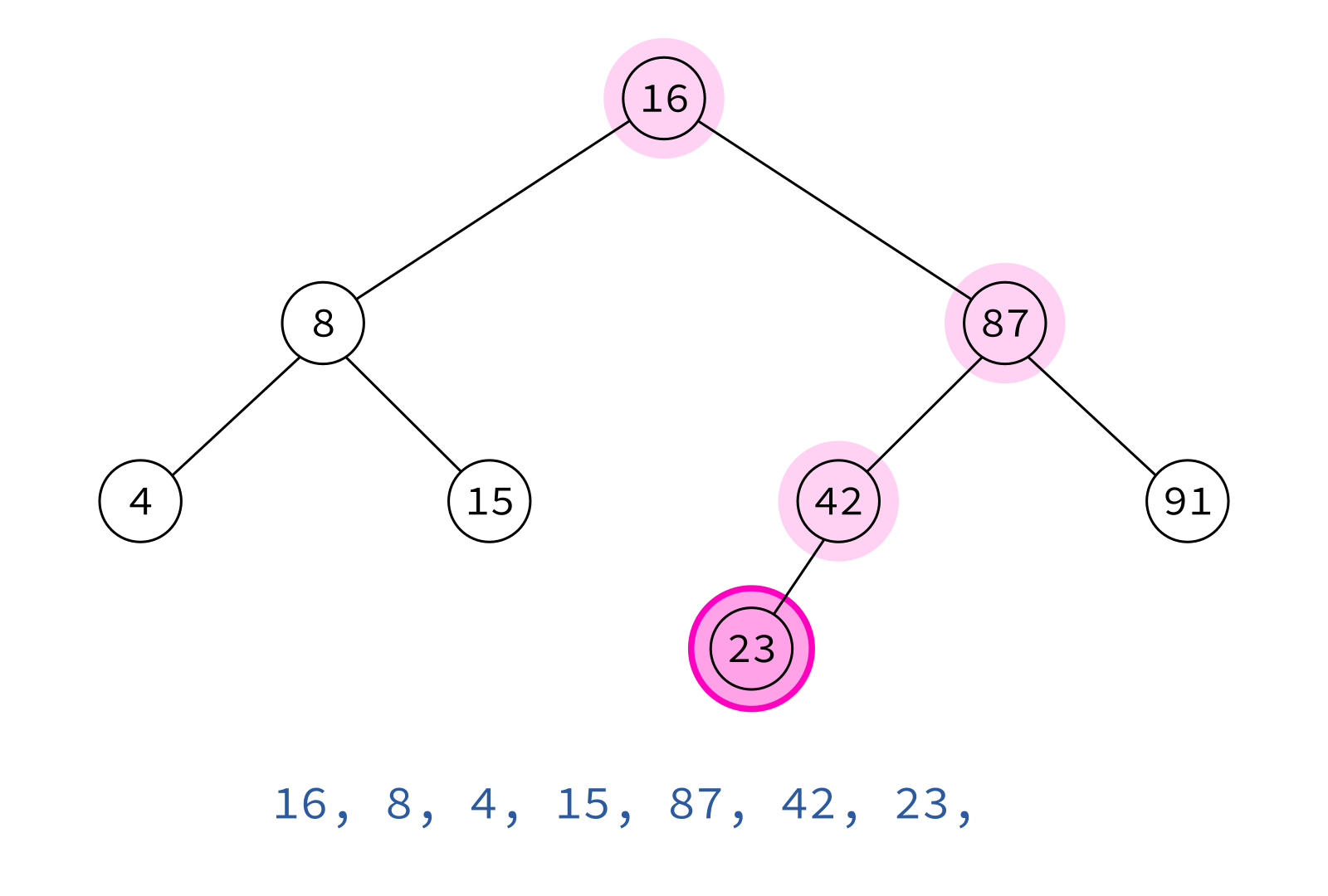
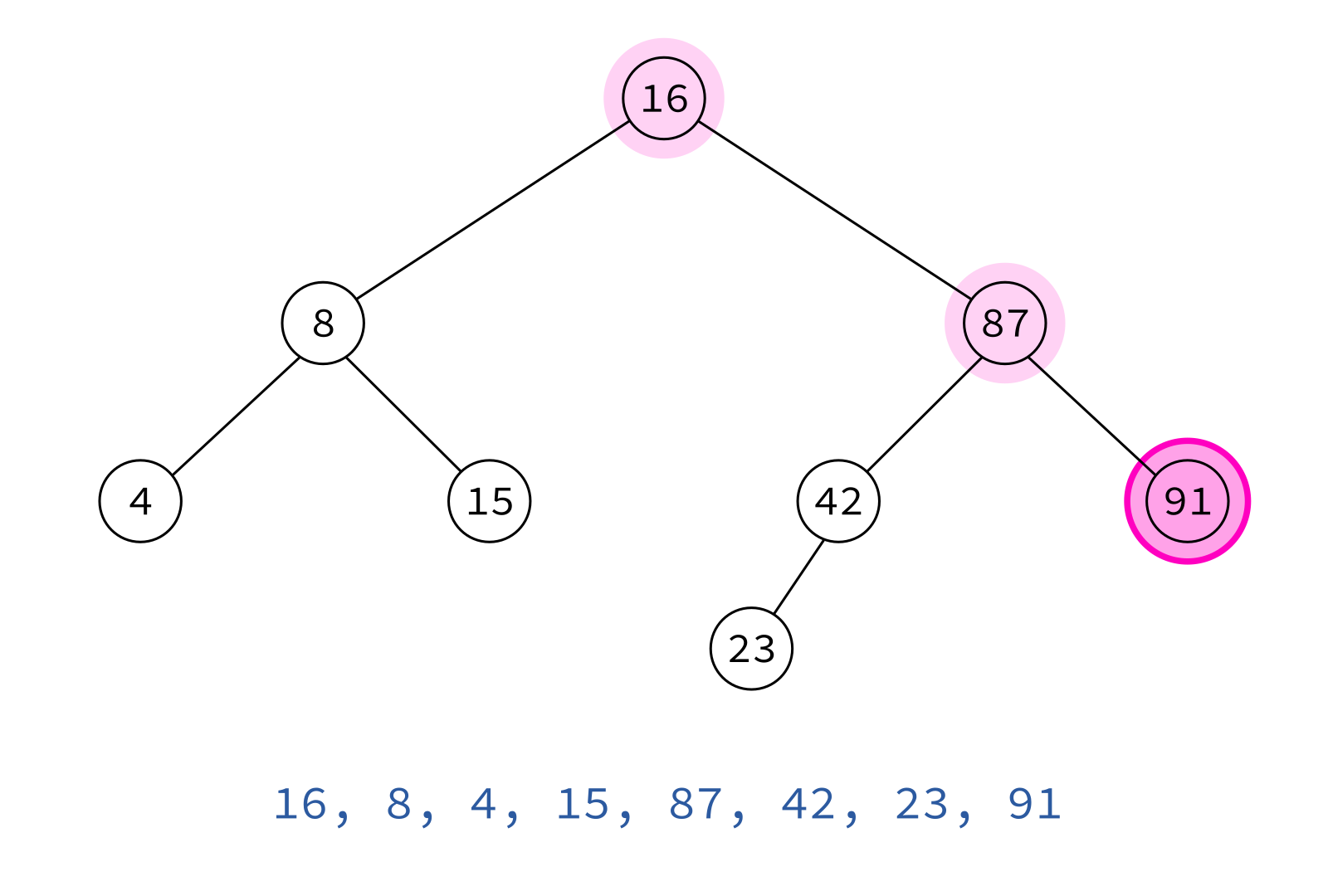
node, left, right
Preorder traversal
Typical use: Make a copy of the tree.
Insert the keys into an empty BST in this order to recreate the original tree.
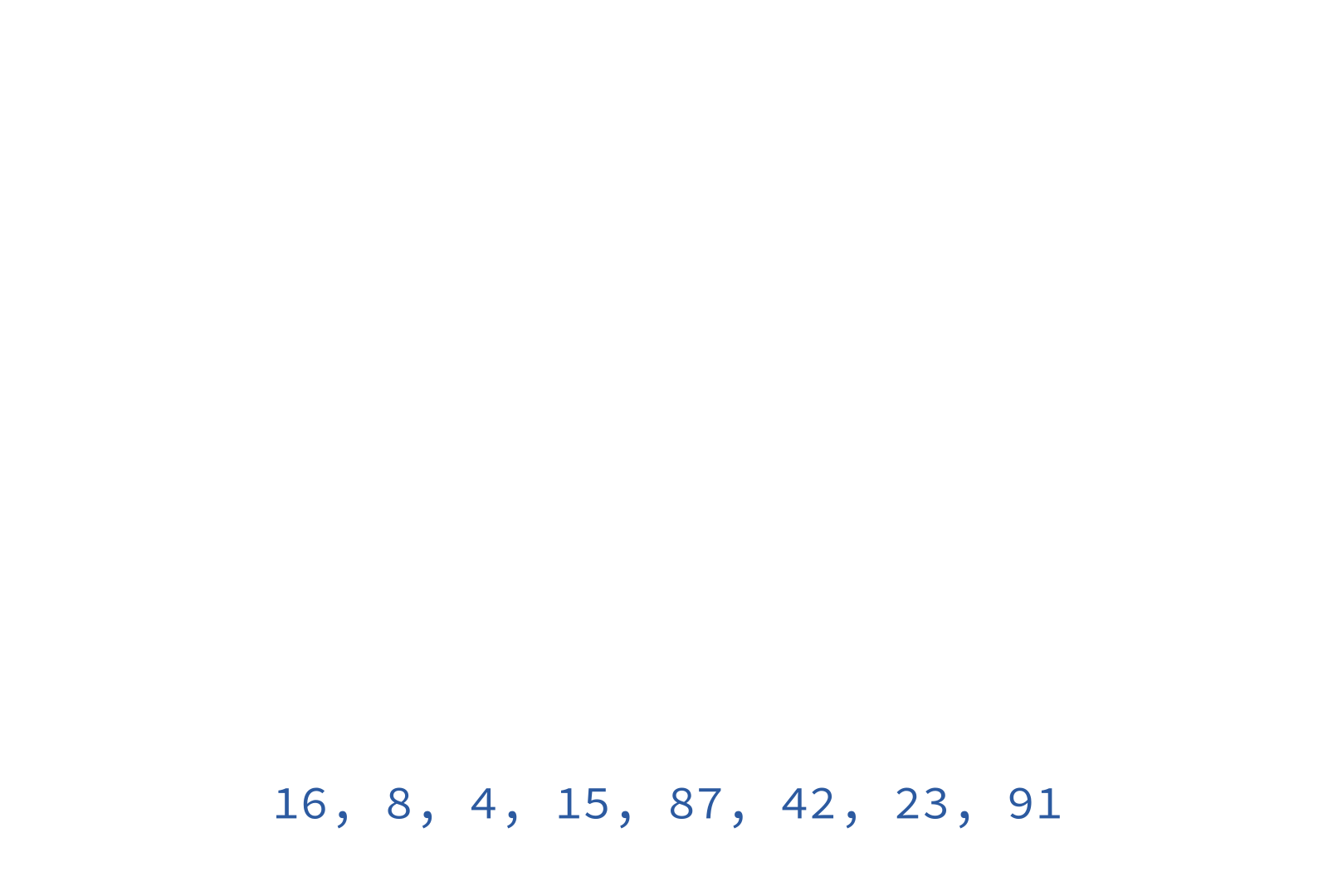
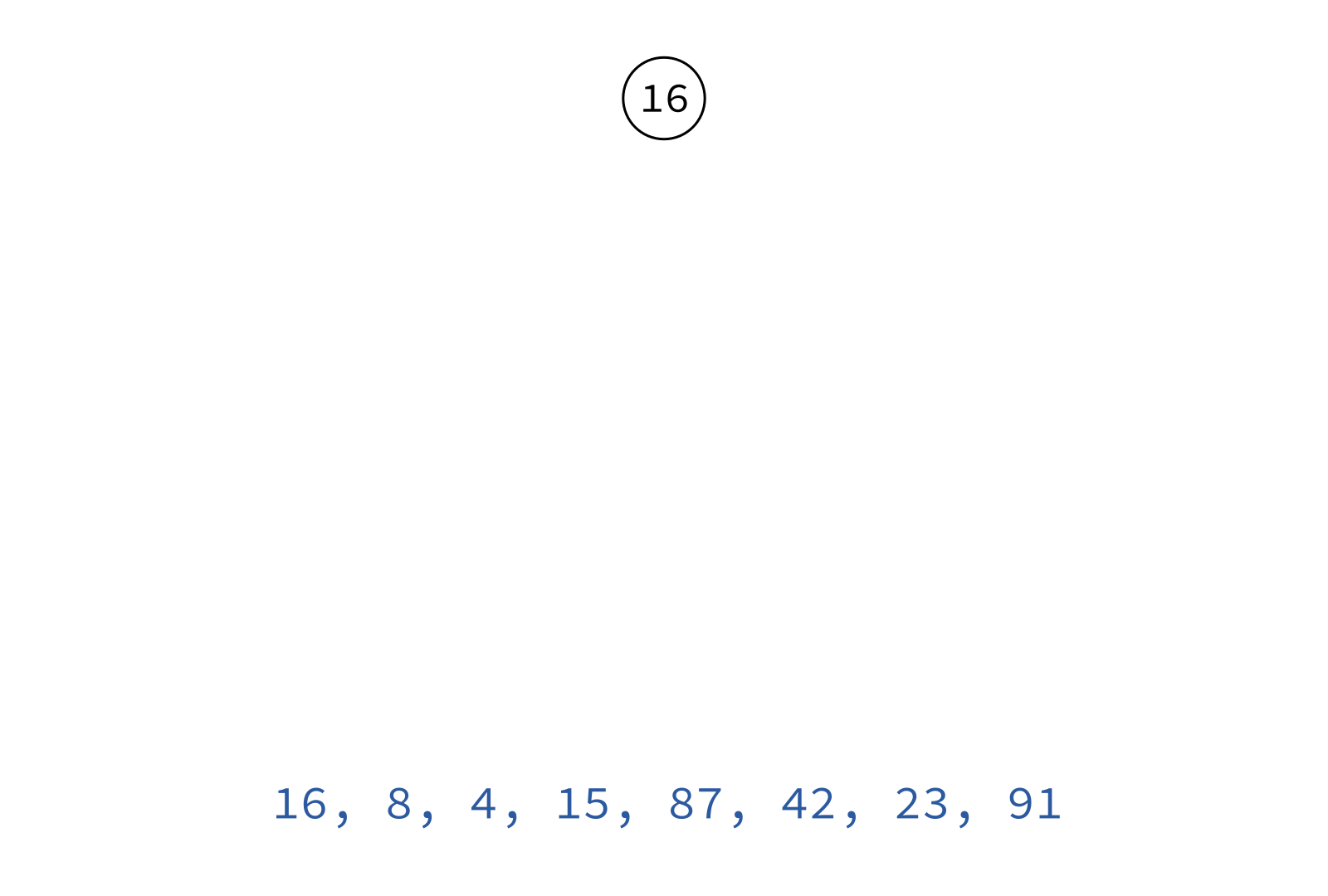
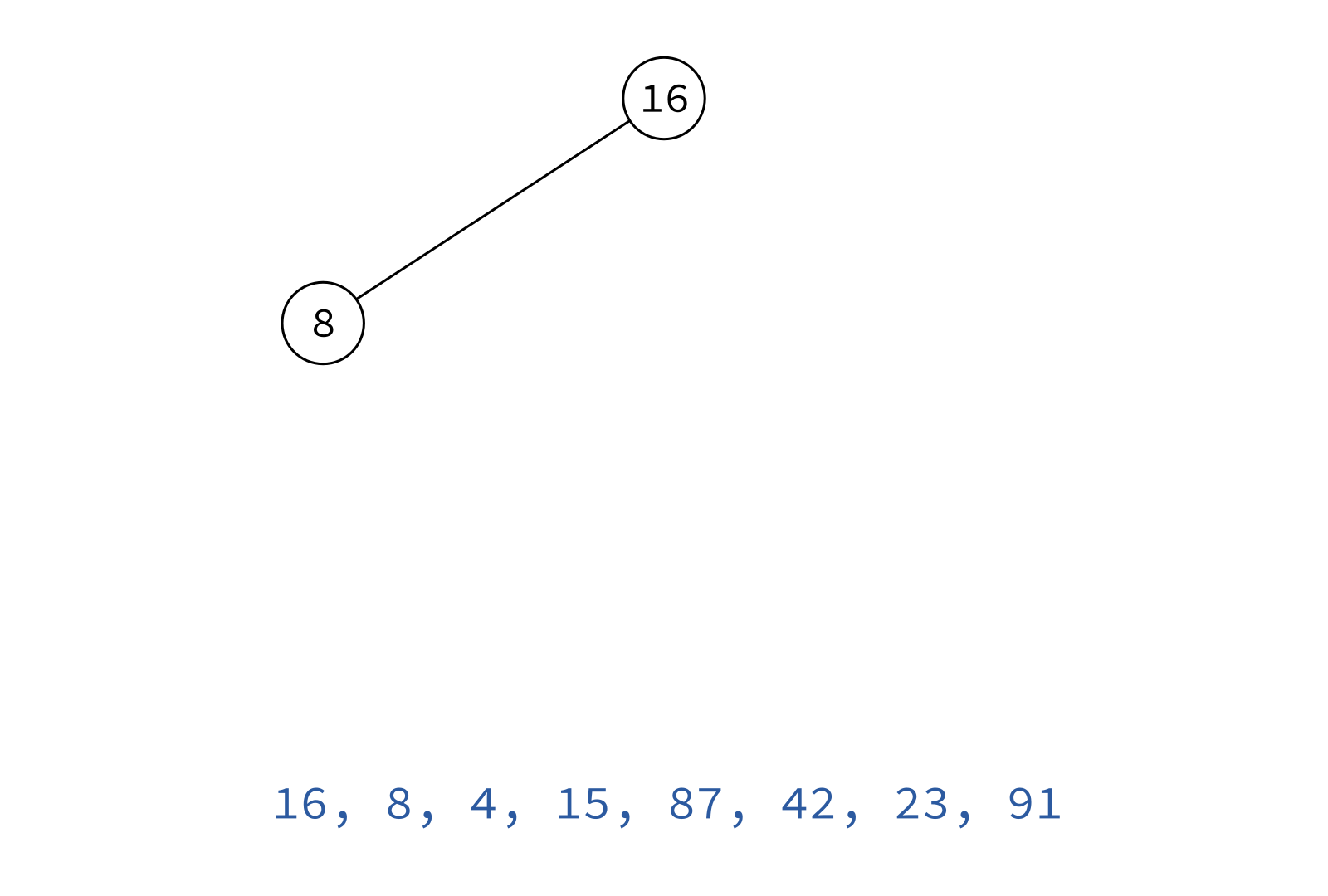
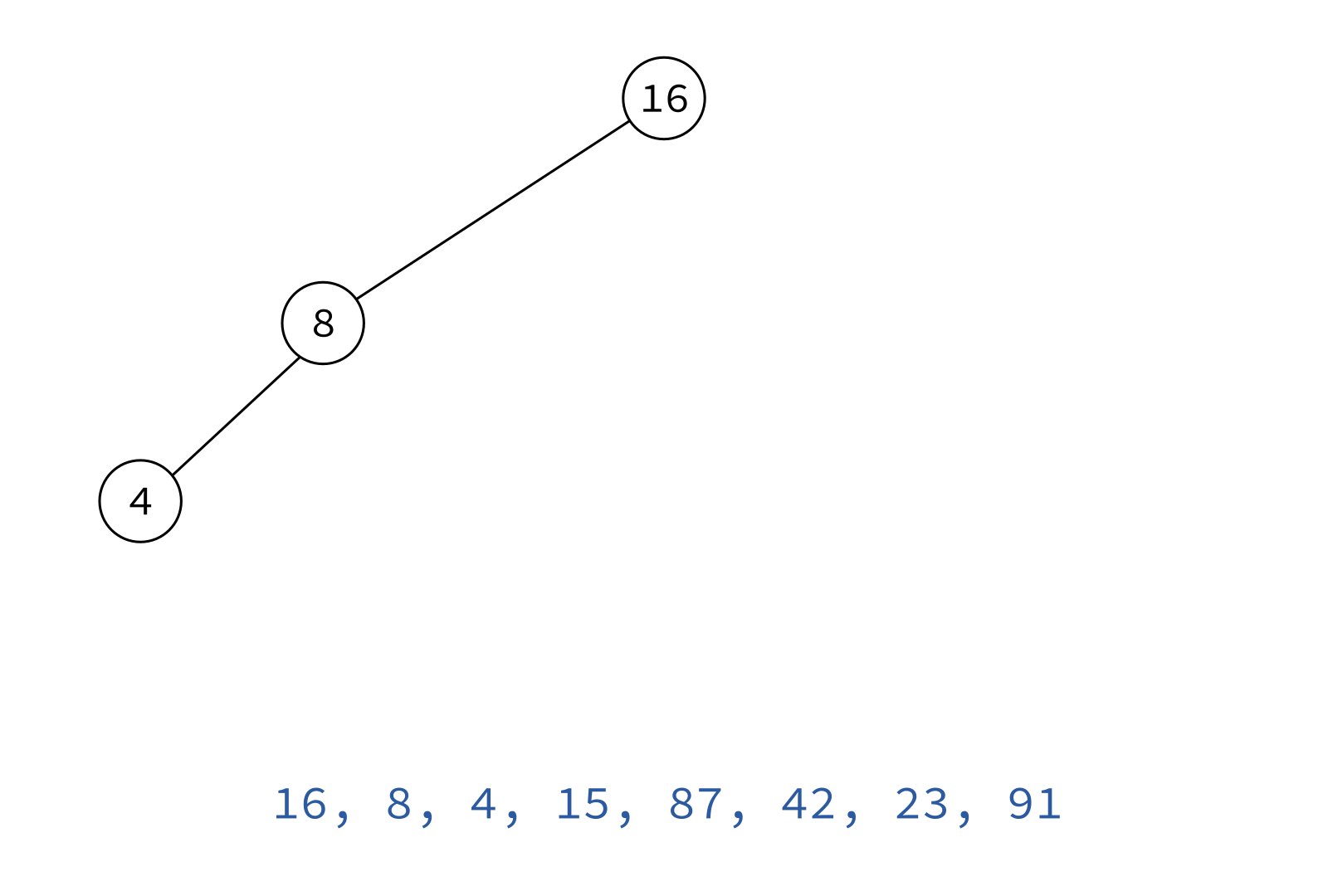
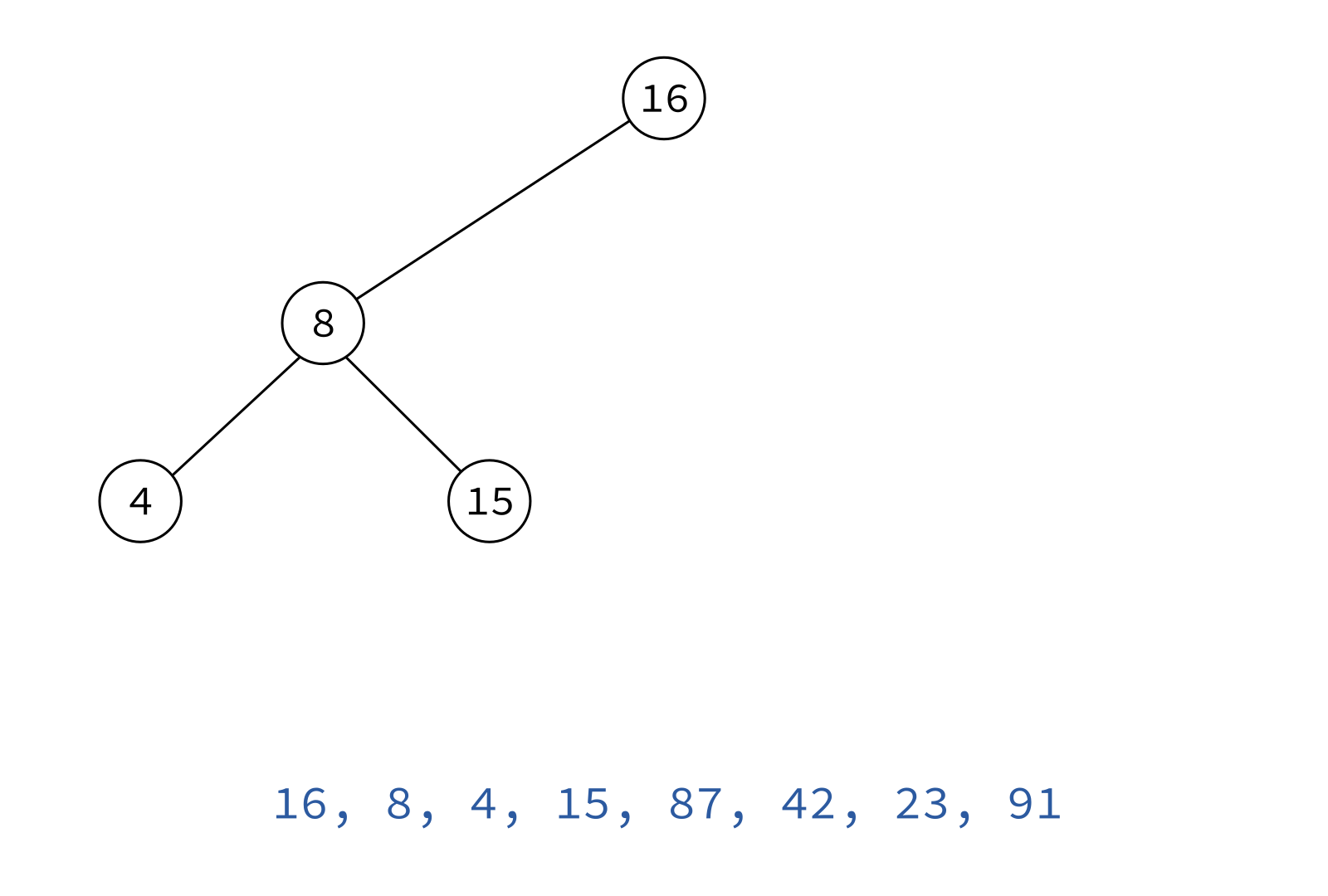
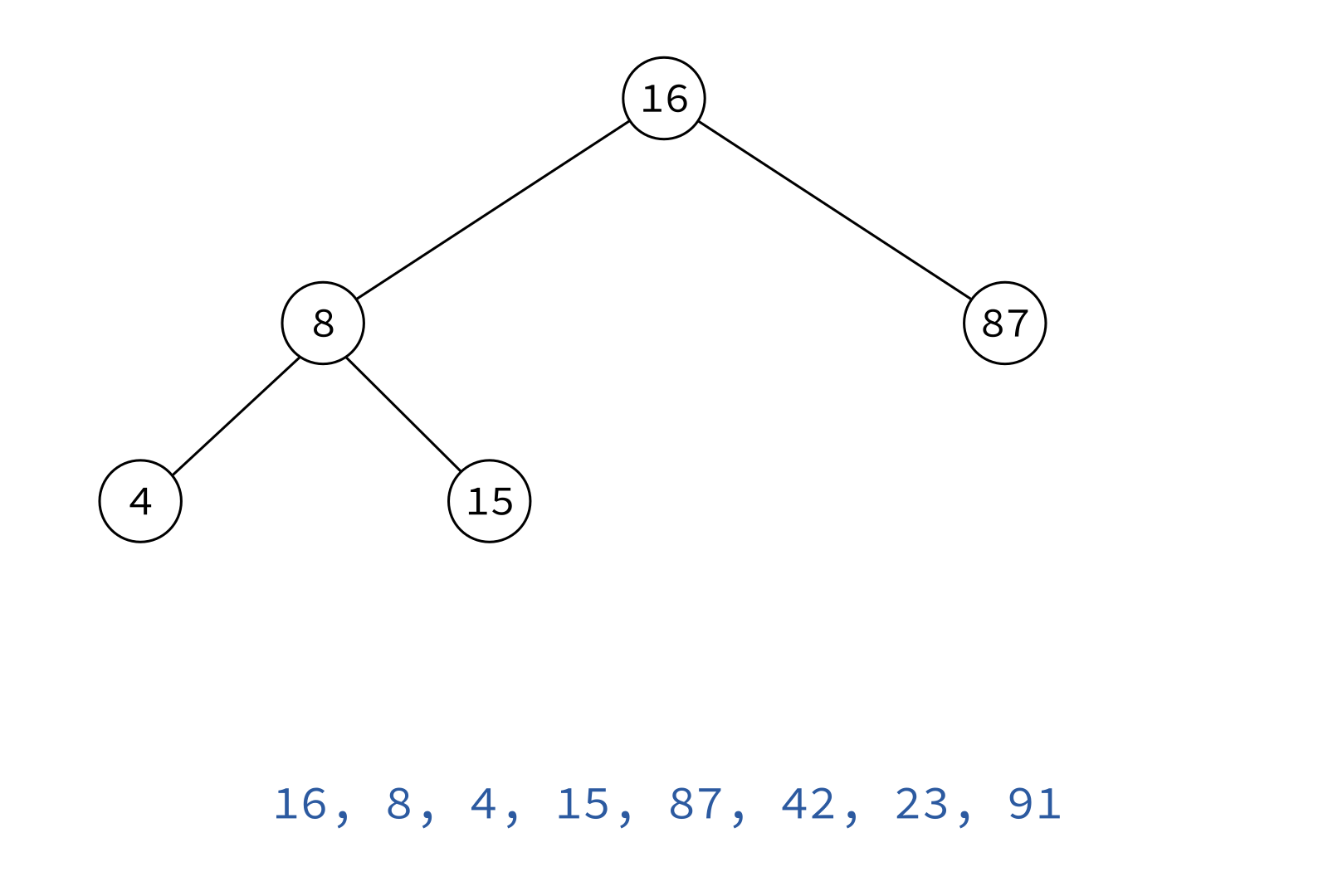
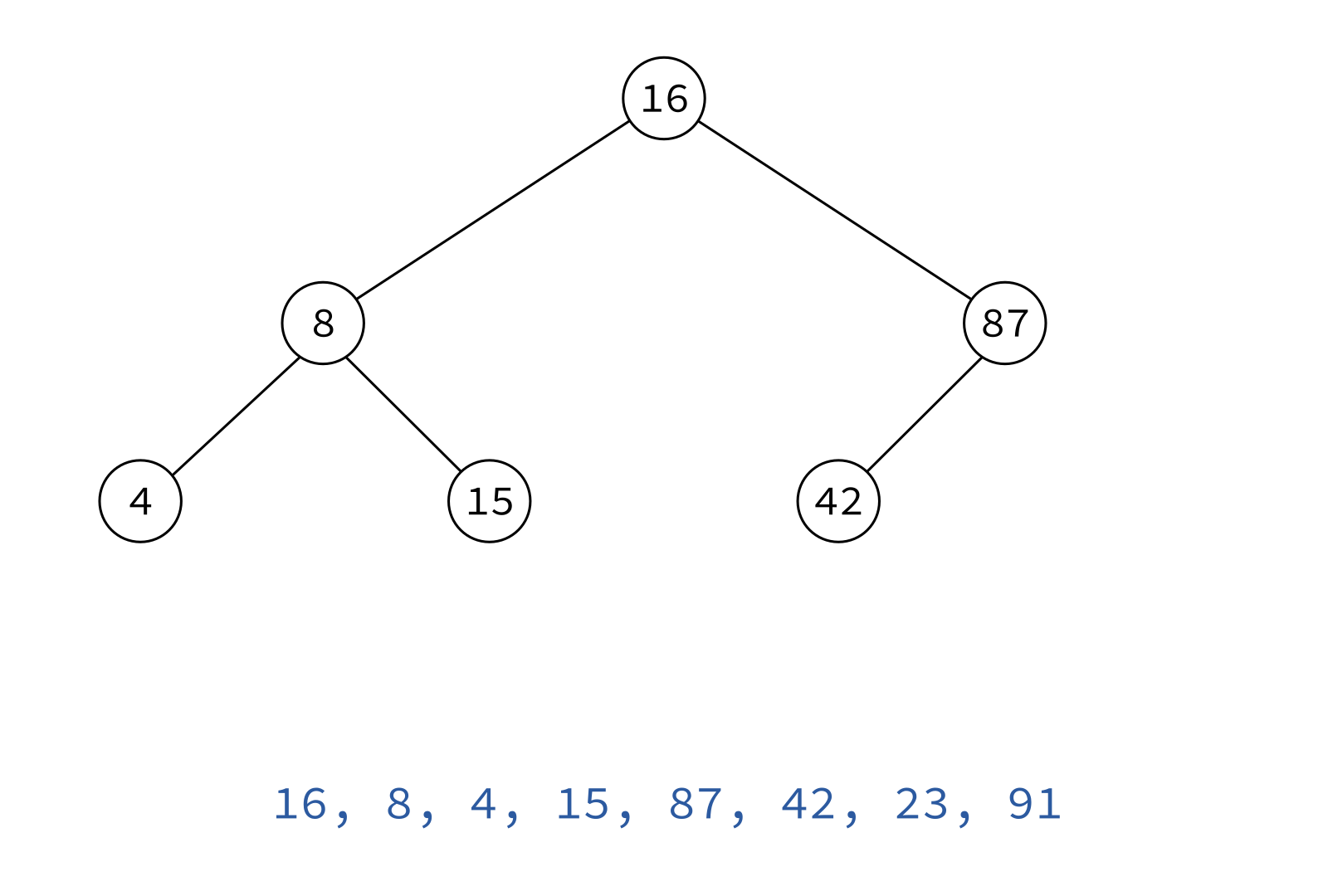
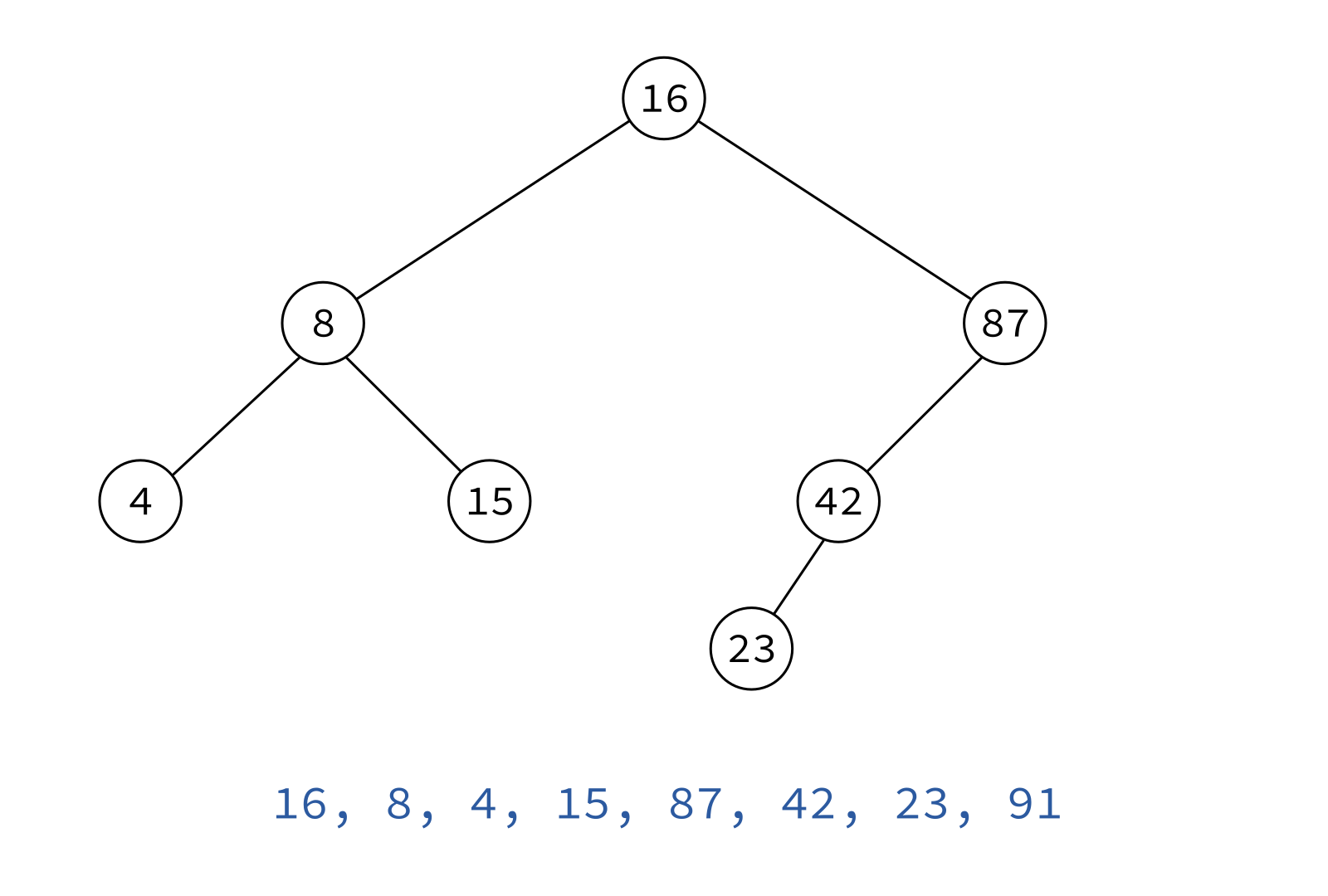
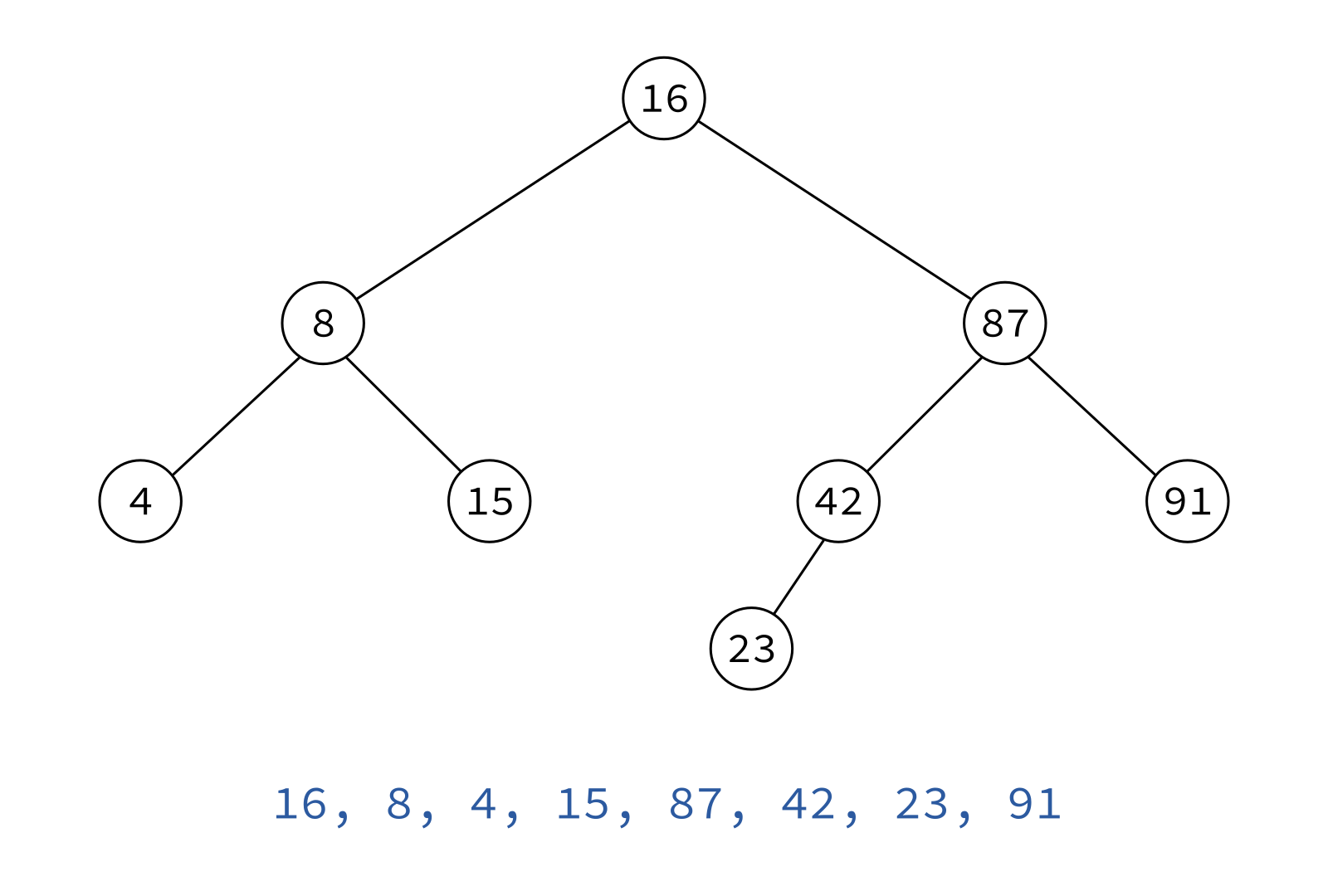
Postorder traversal
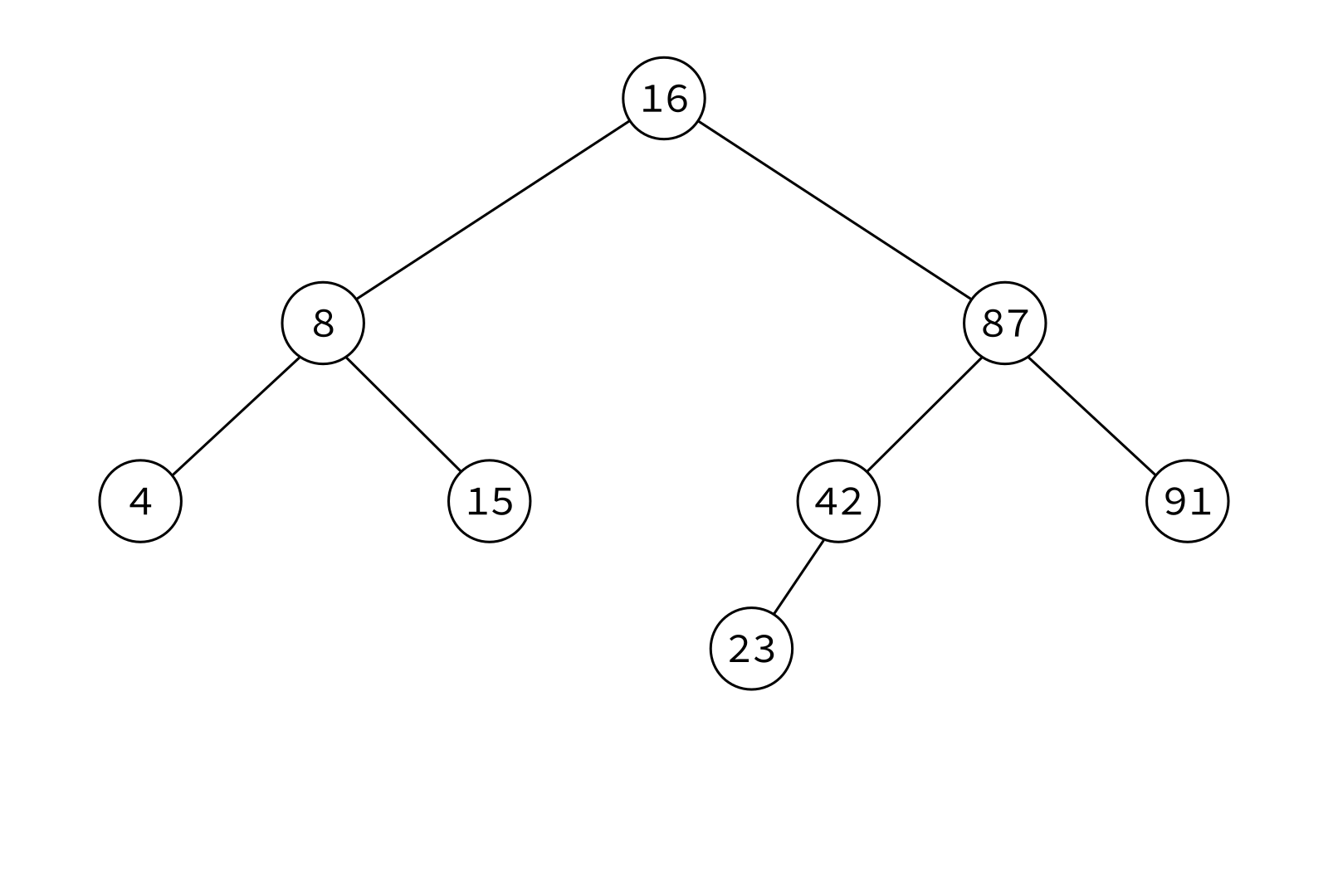
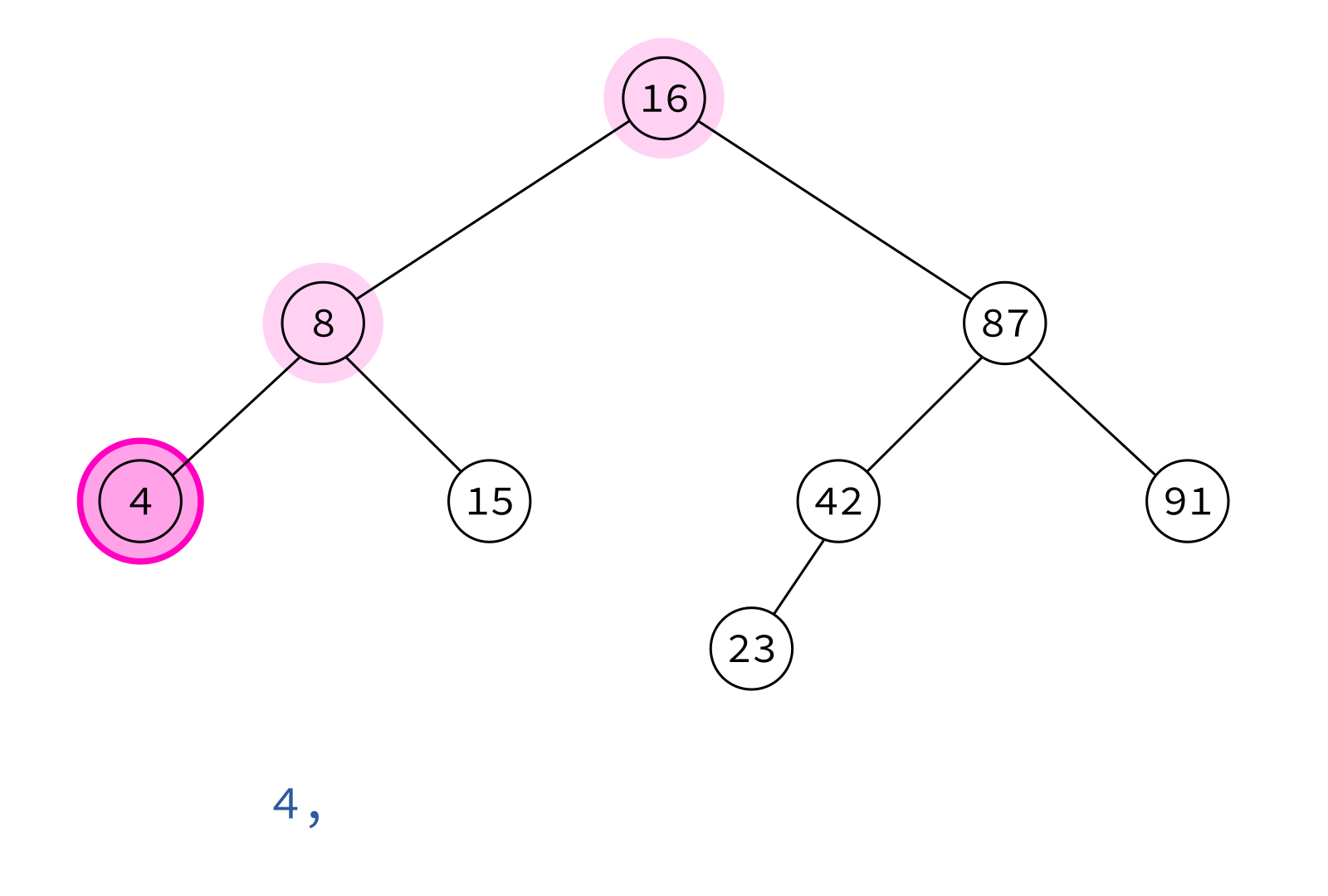
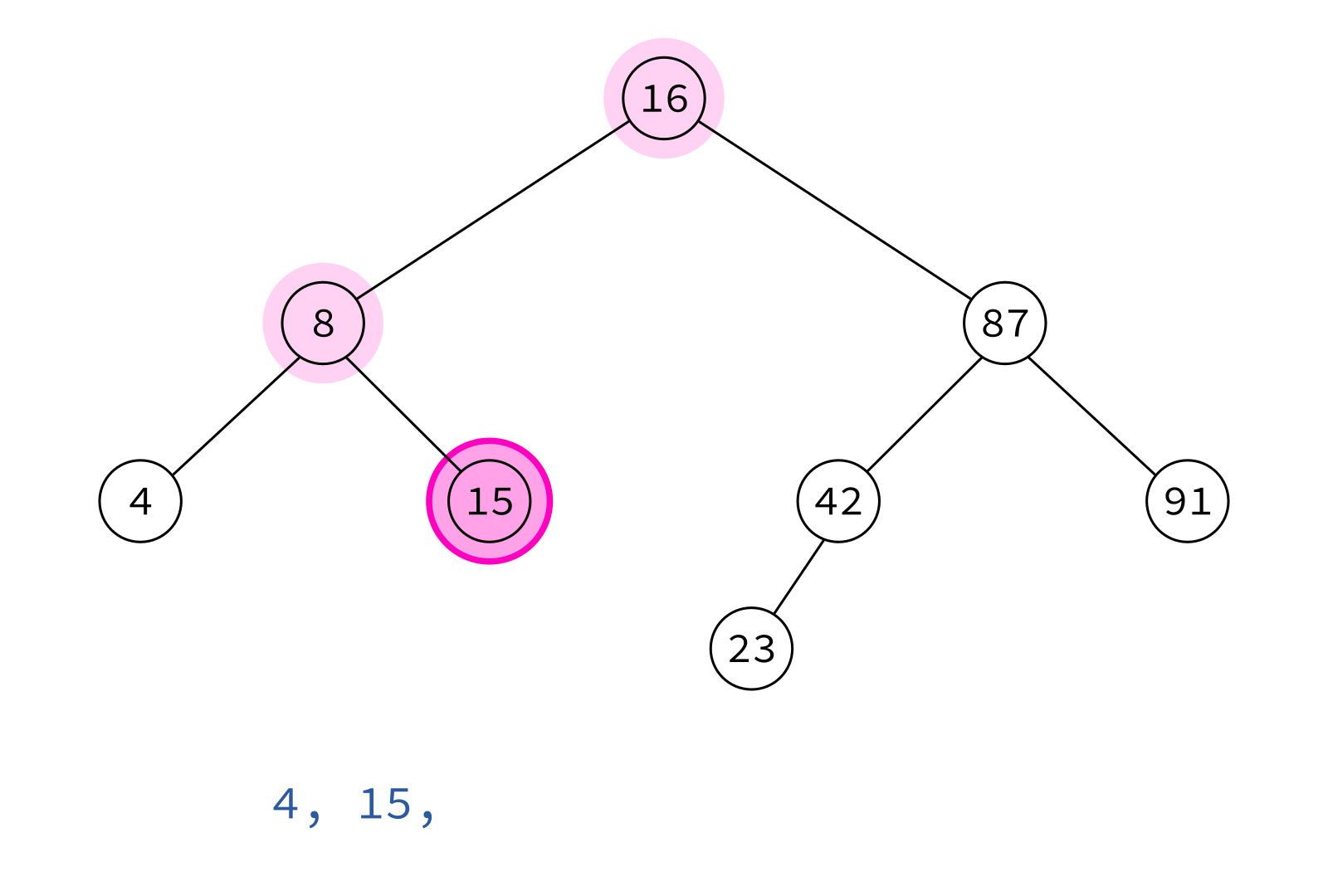
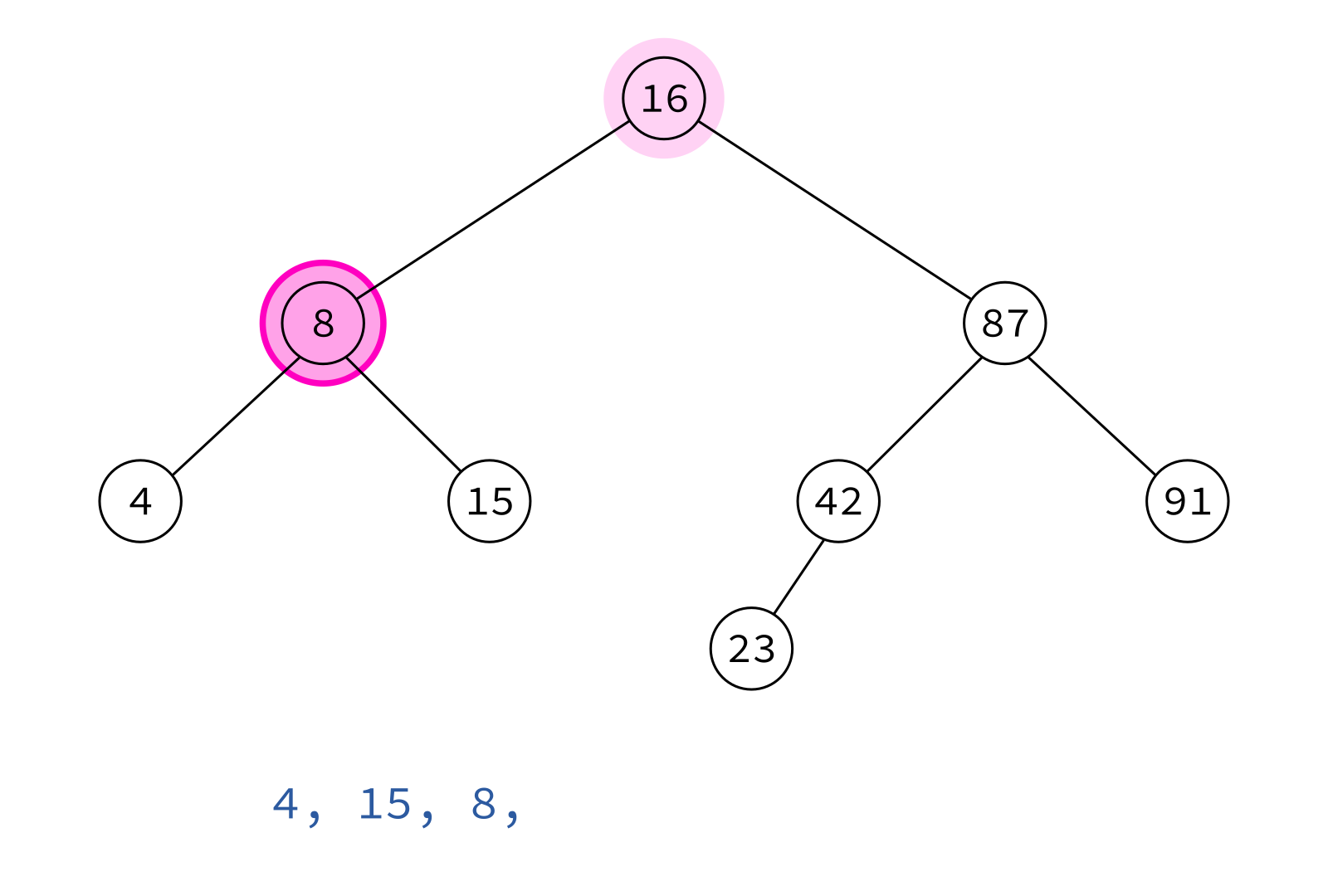
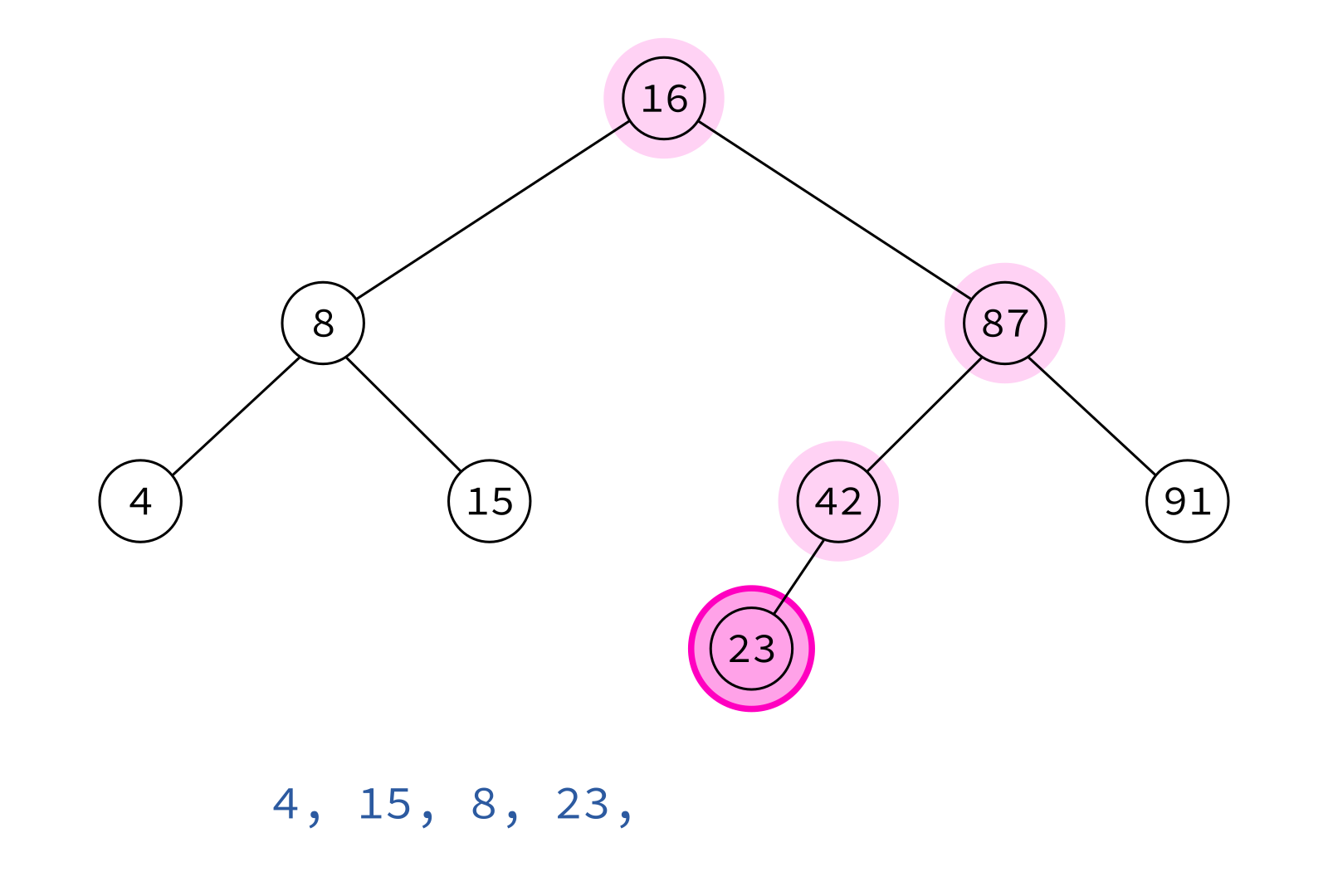
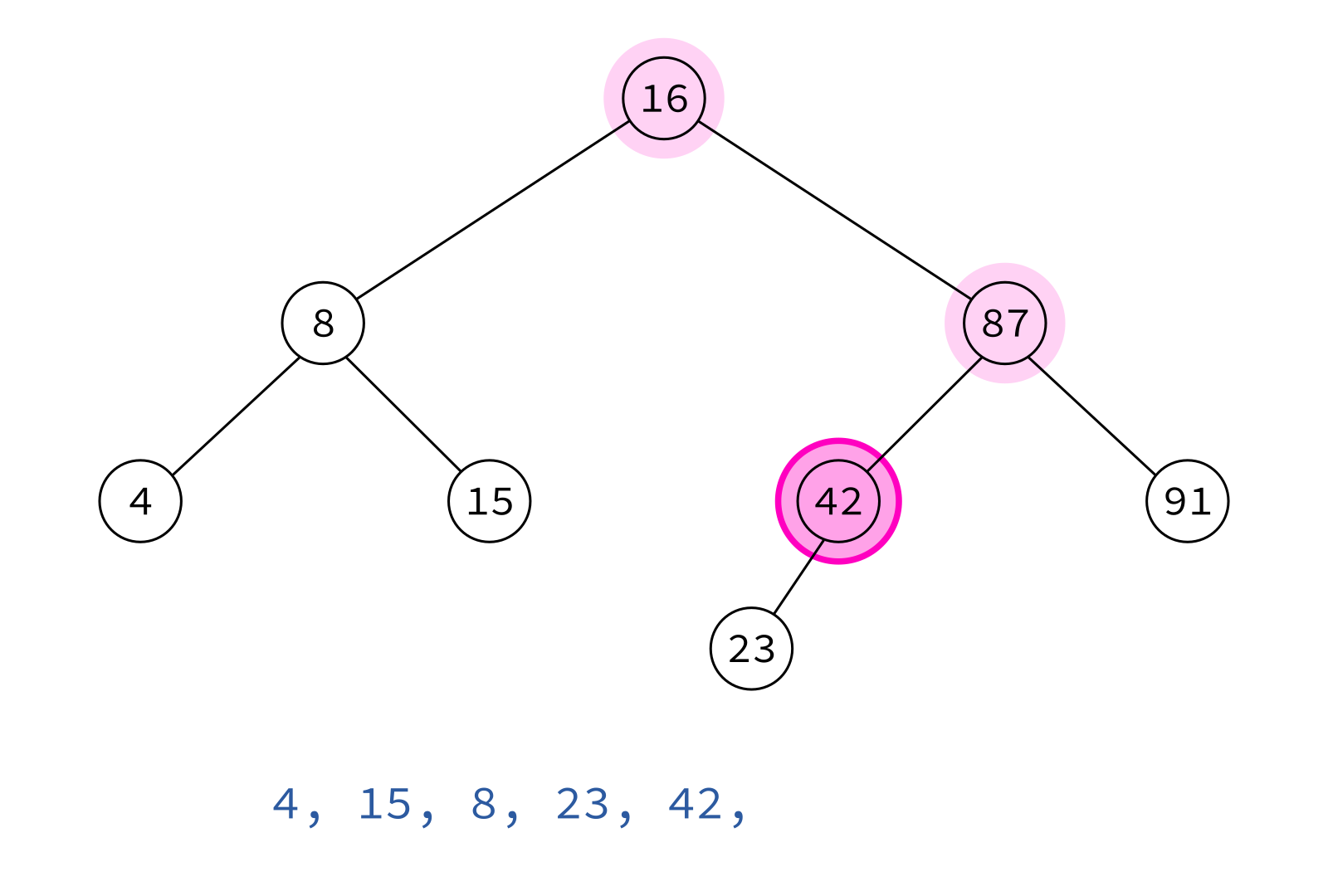
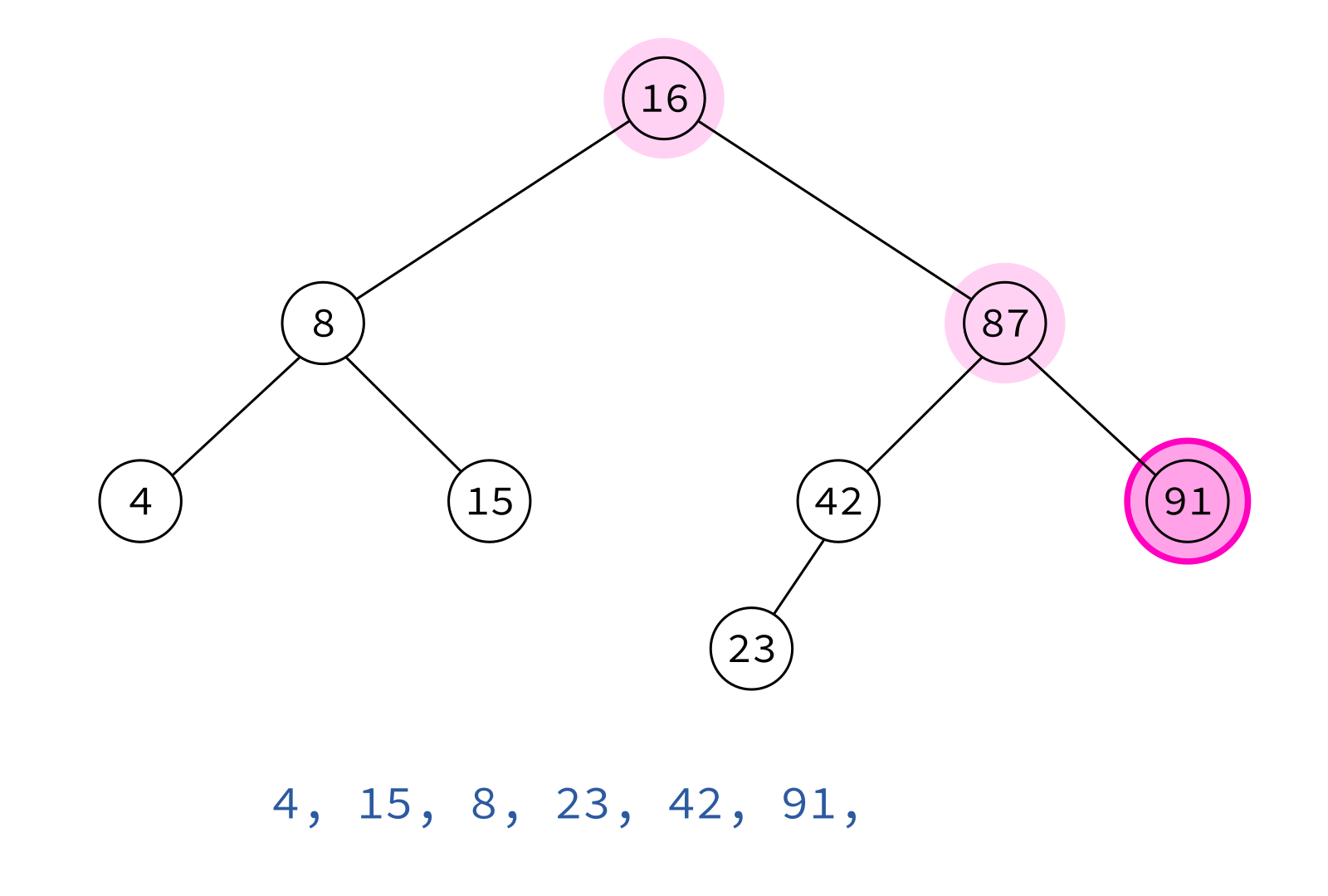
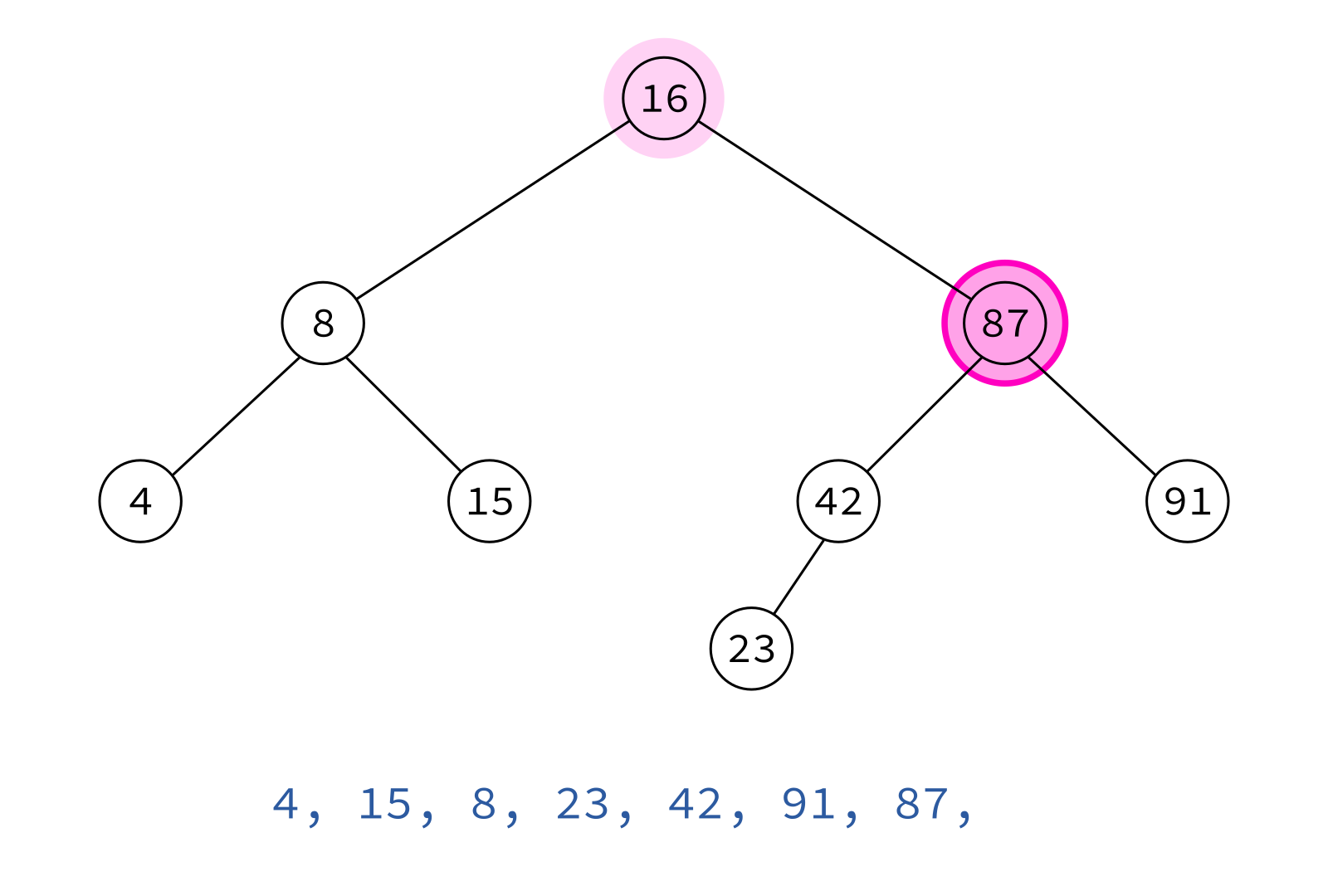
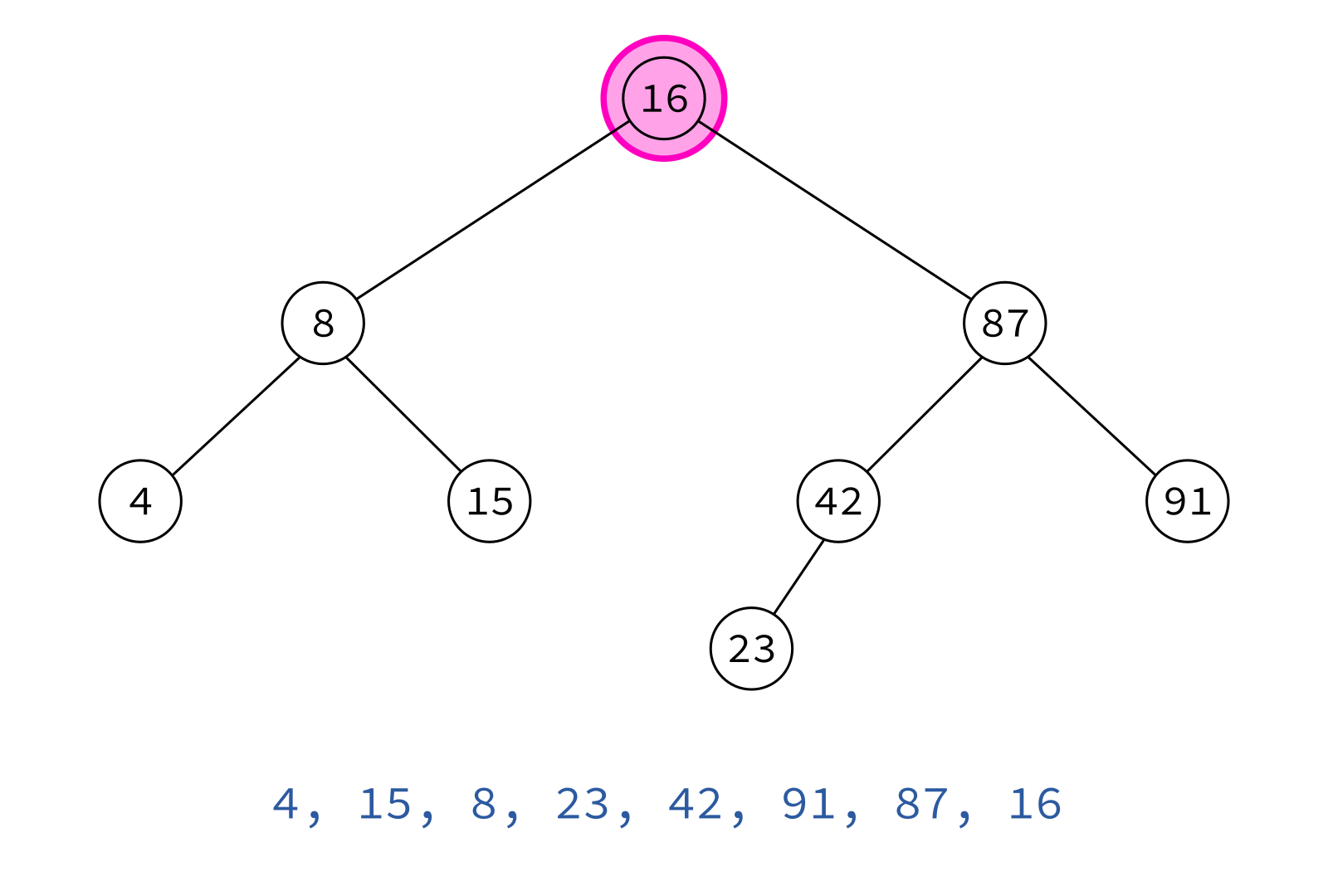
left, right, node
Postorder traversal
Typical use: Delete the tree.
If you delete keys in postorder, then you will only ever be removing nodes without children.
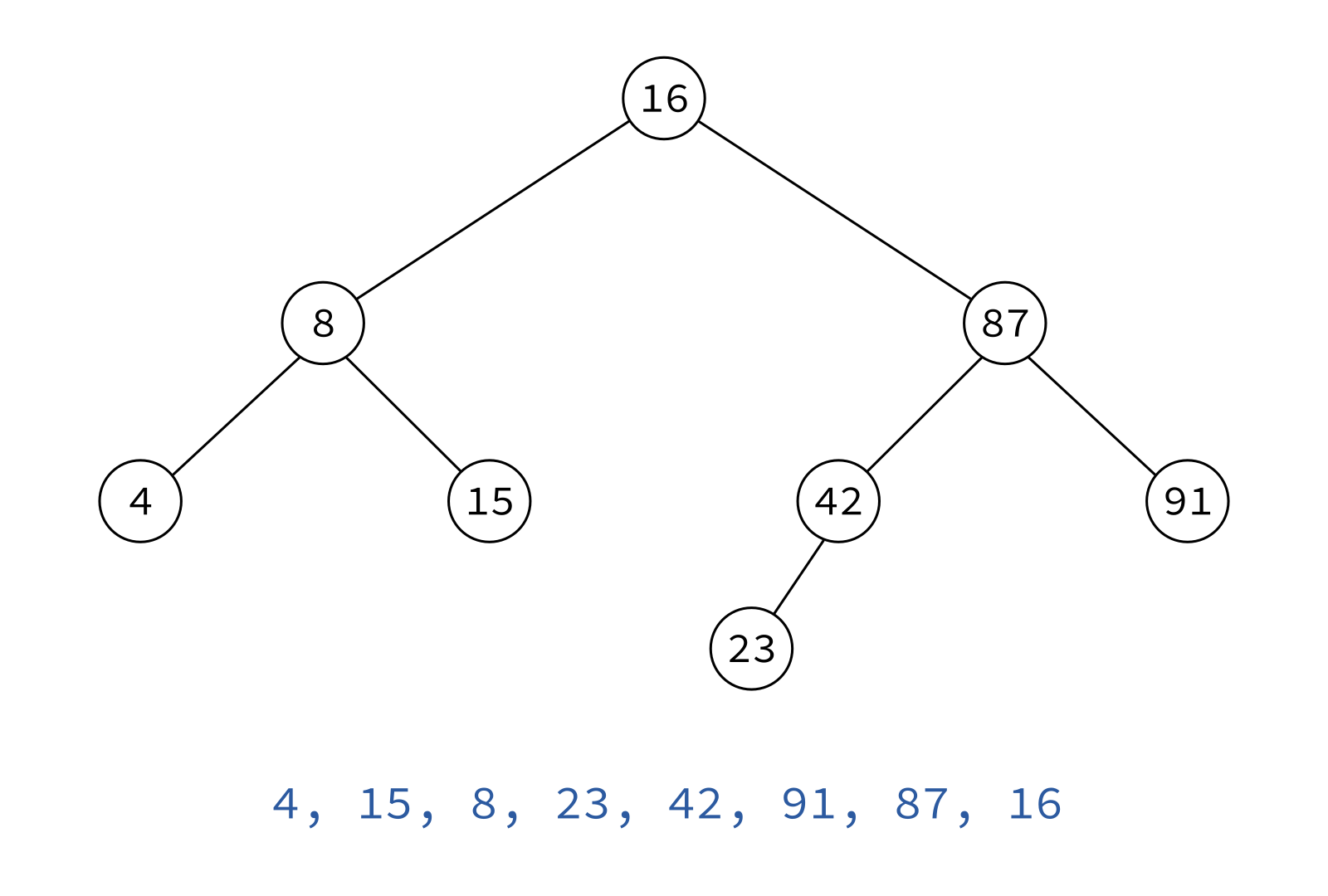
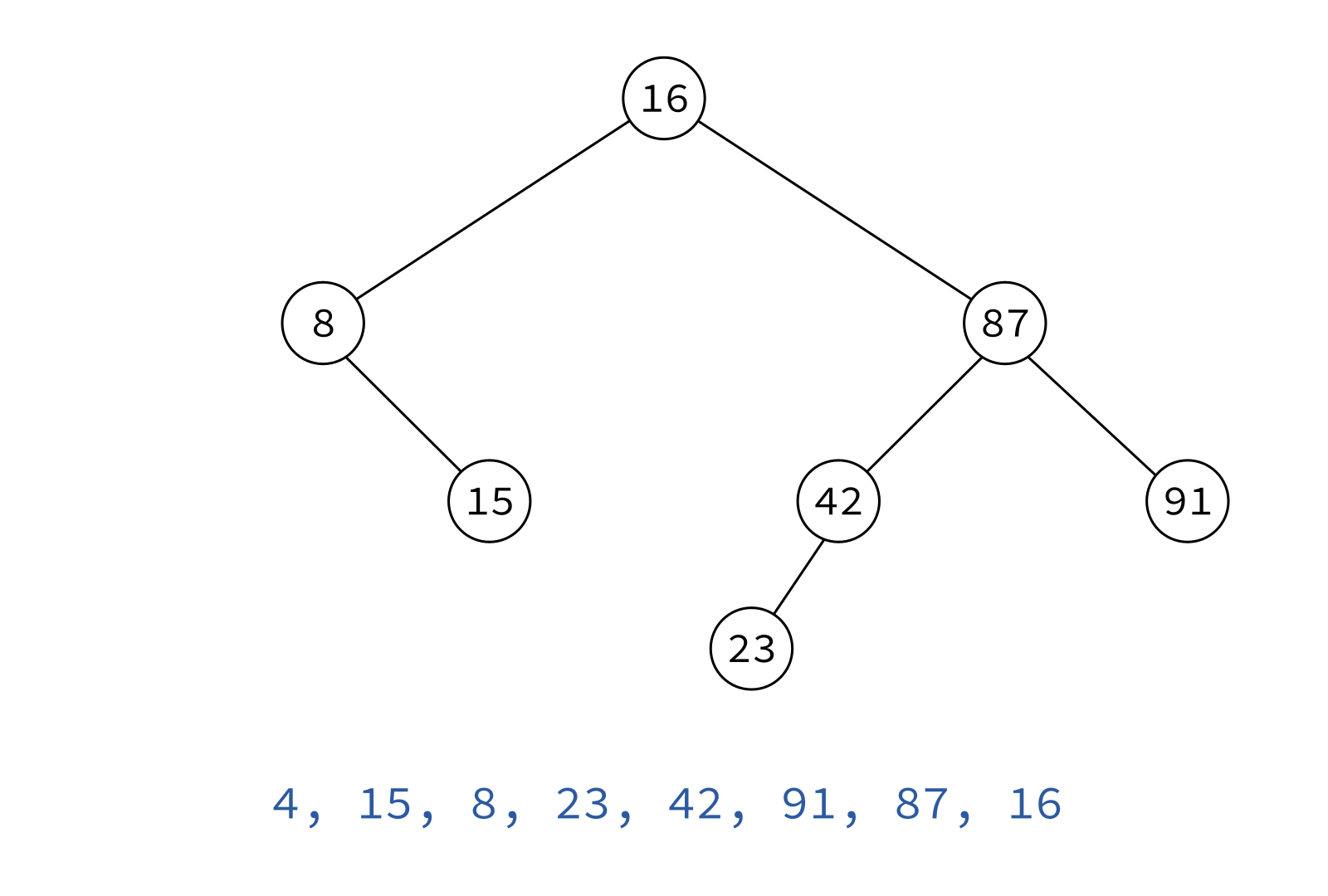
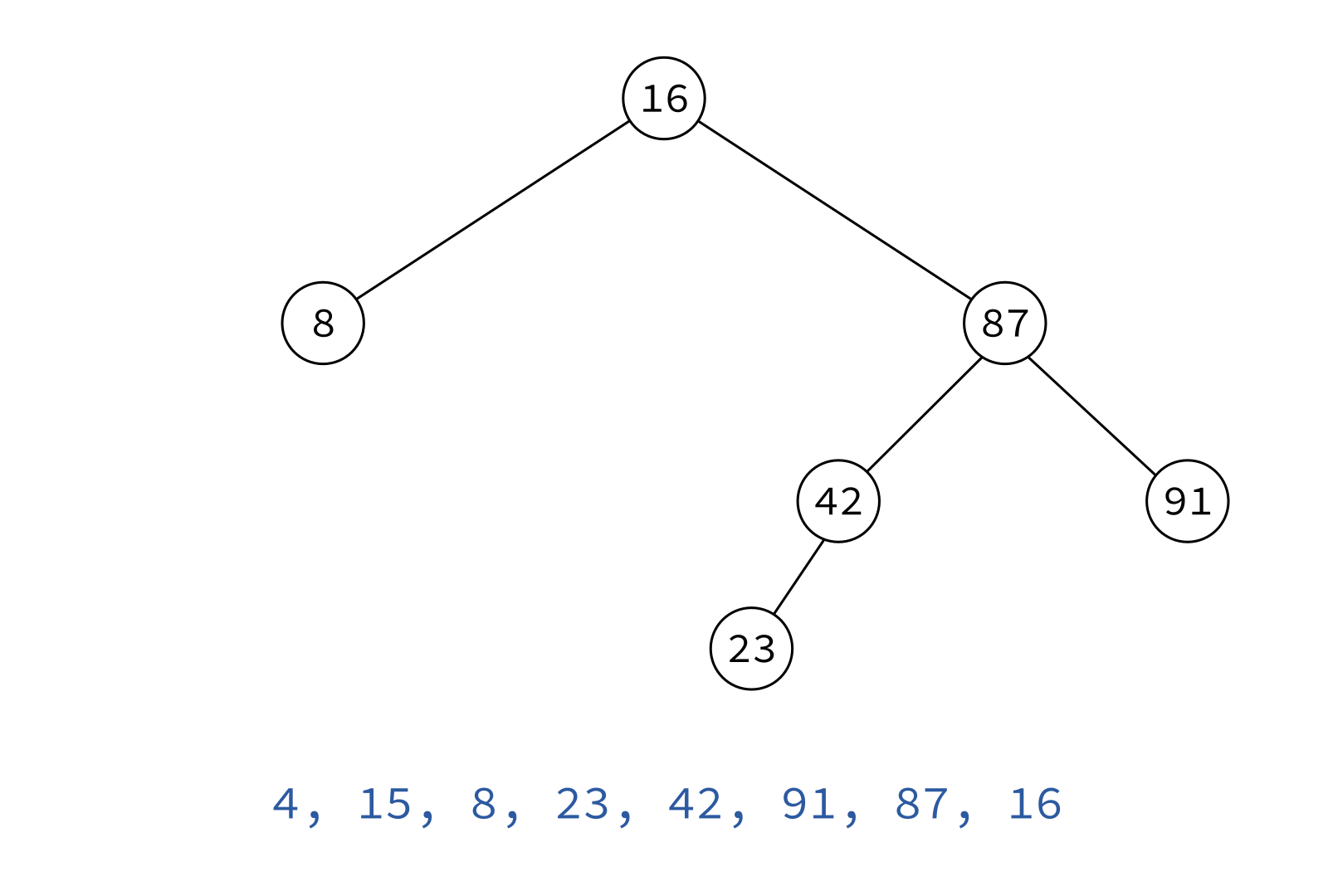
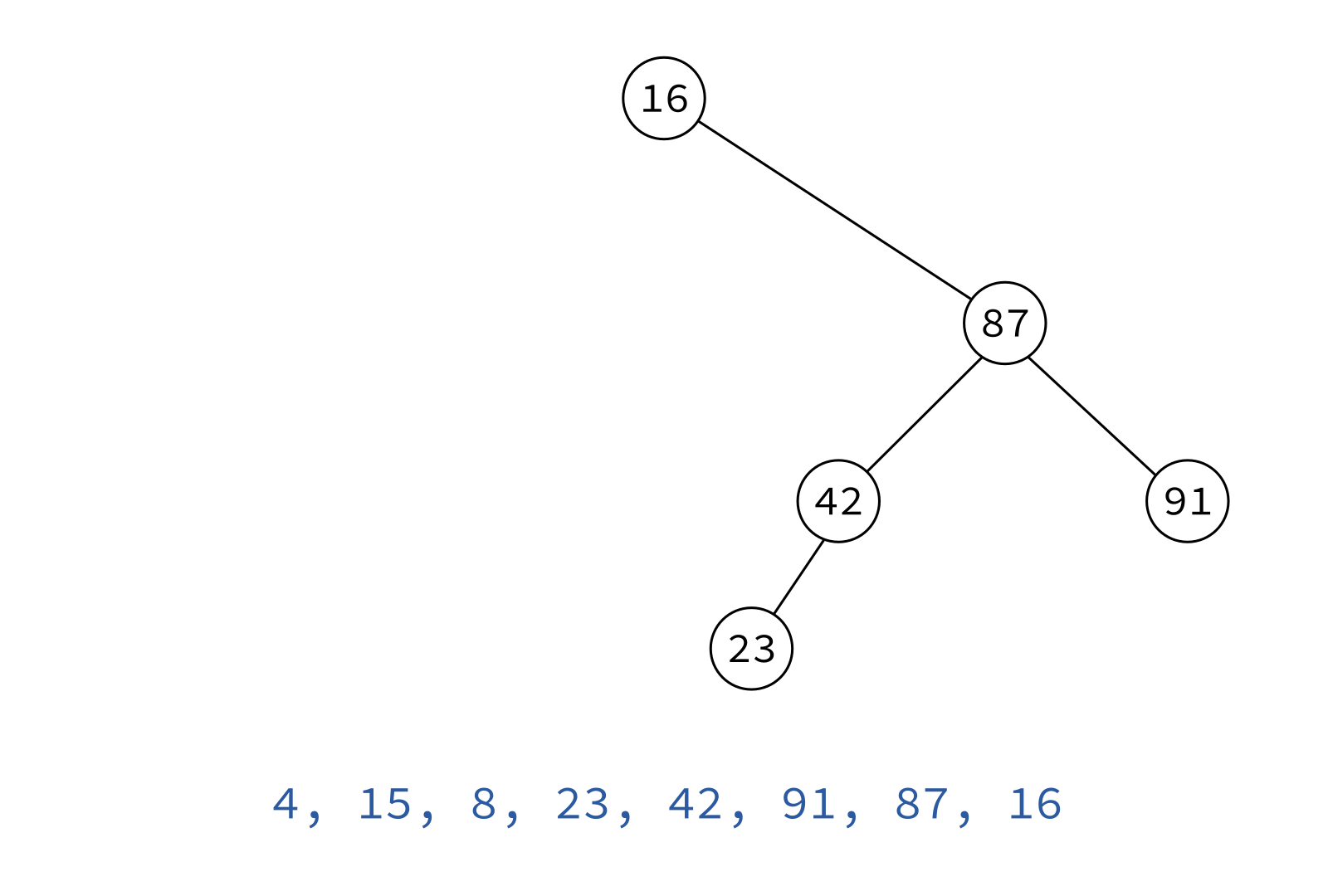
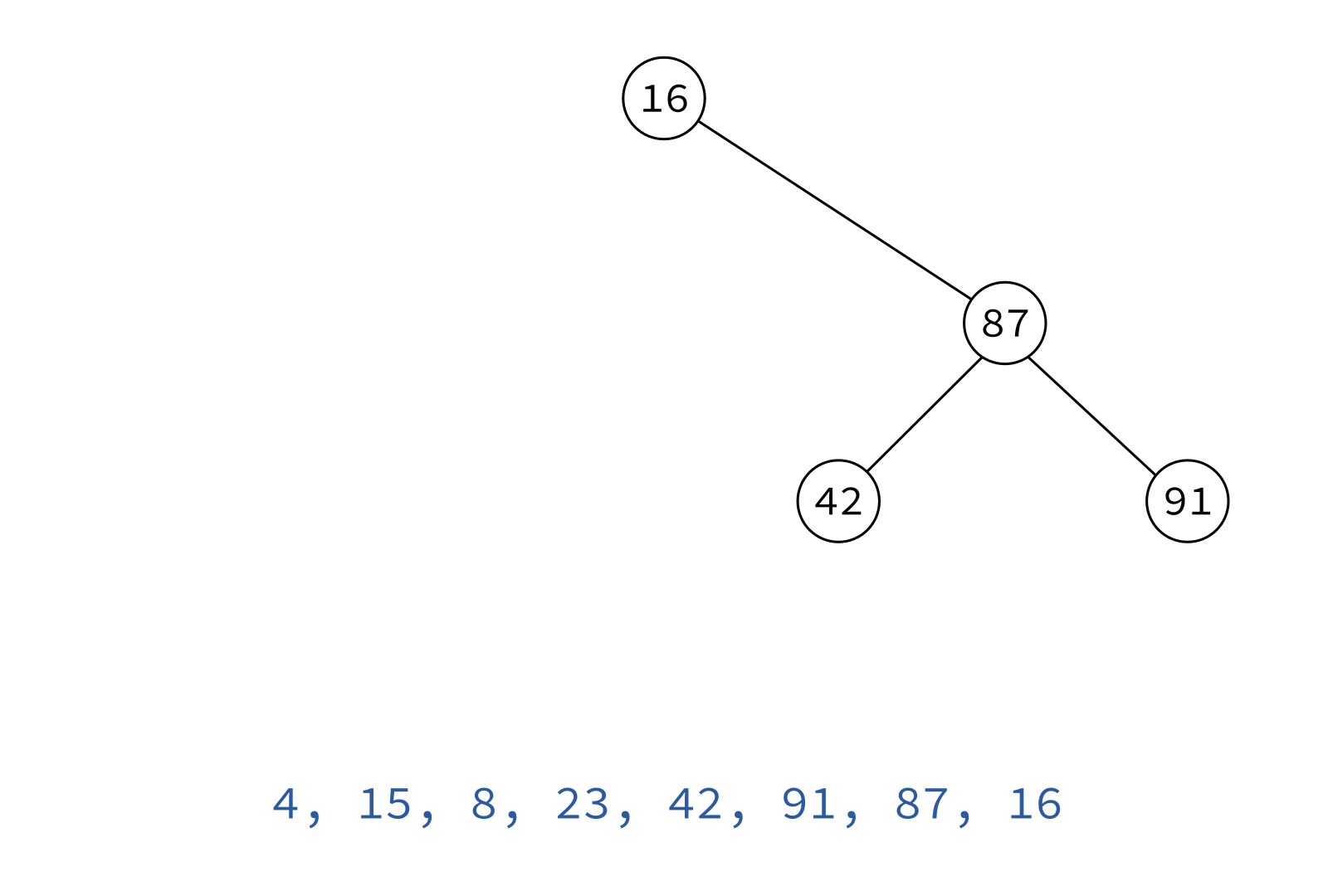
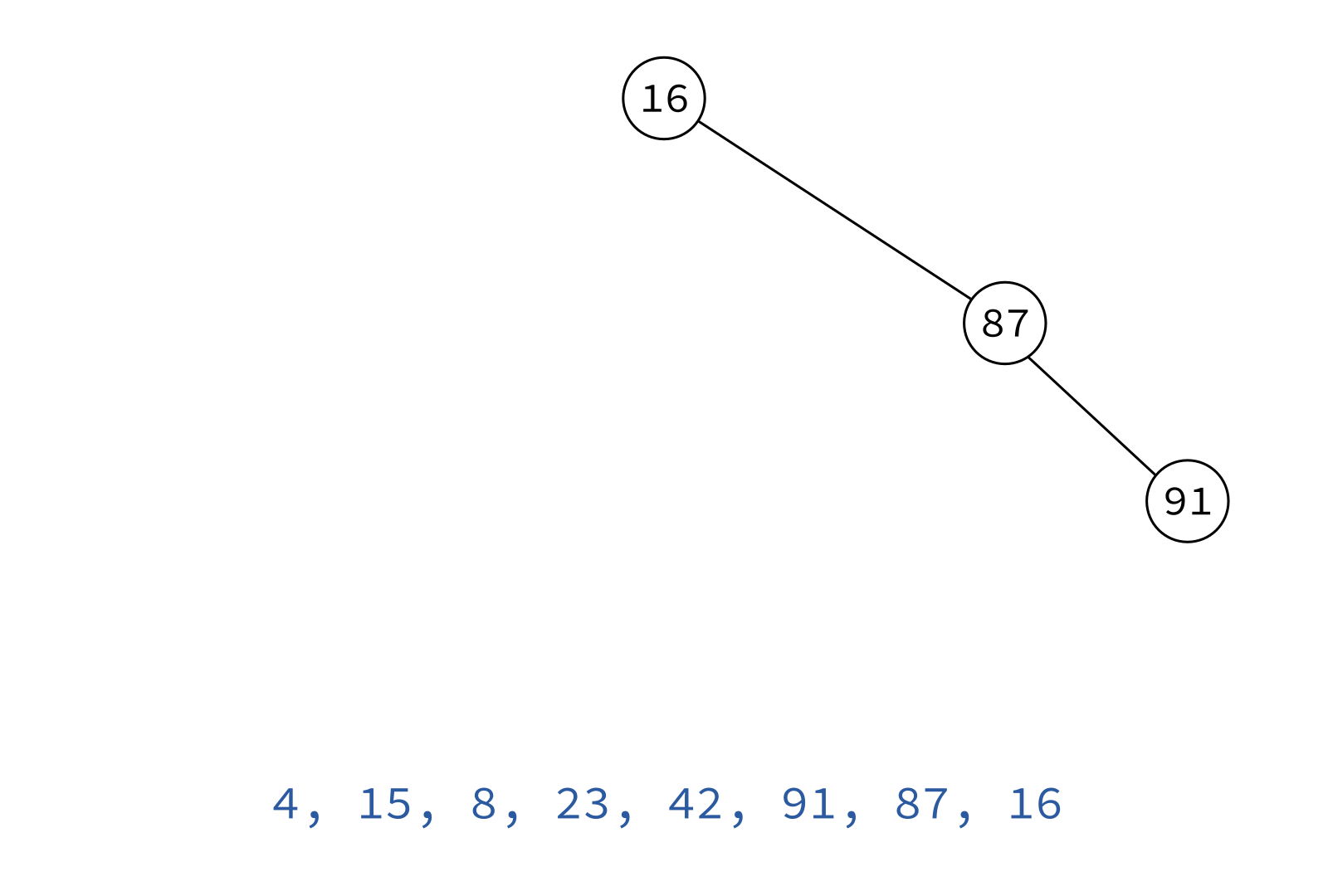
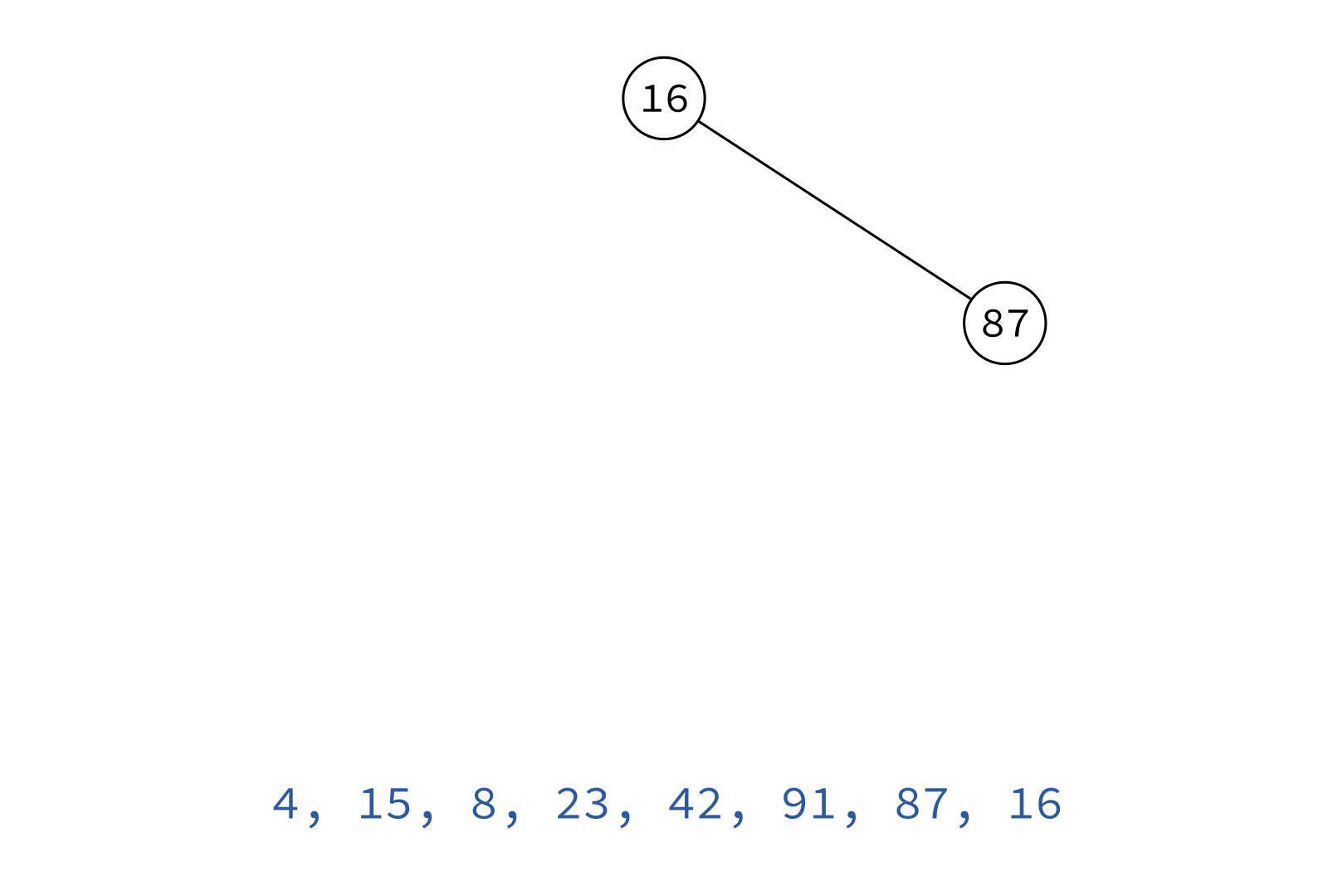
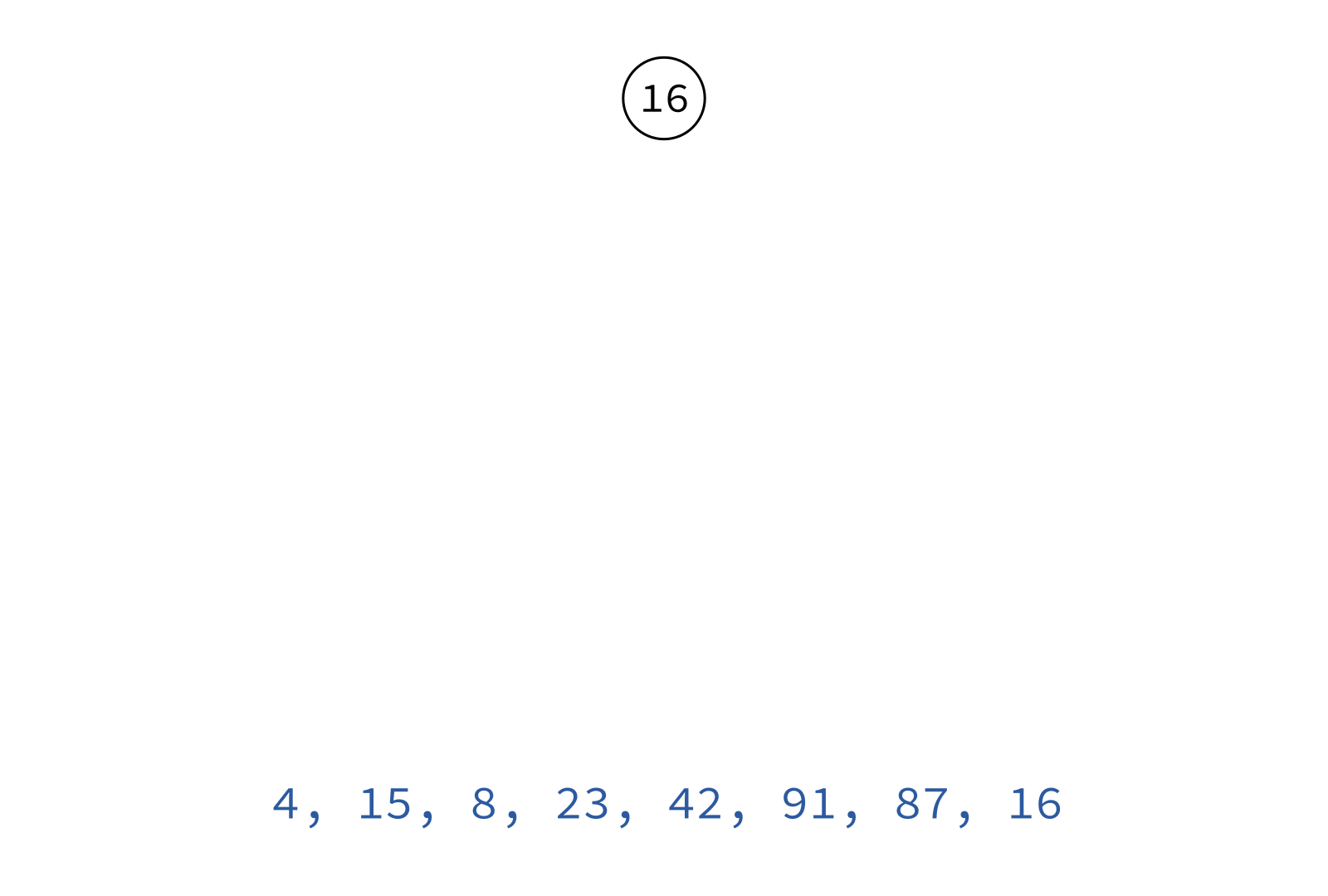
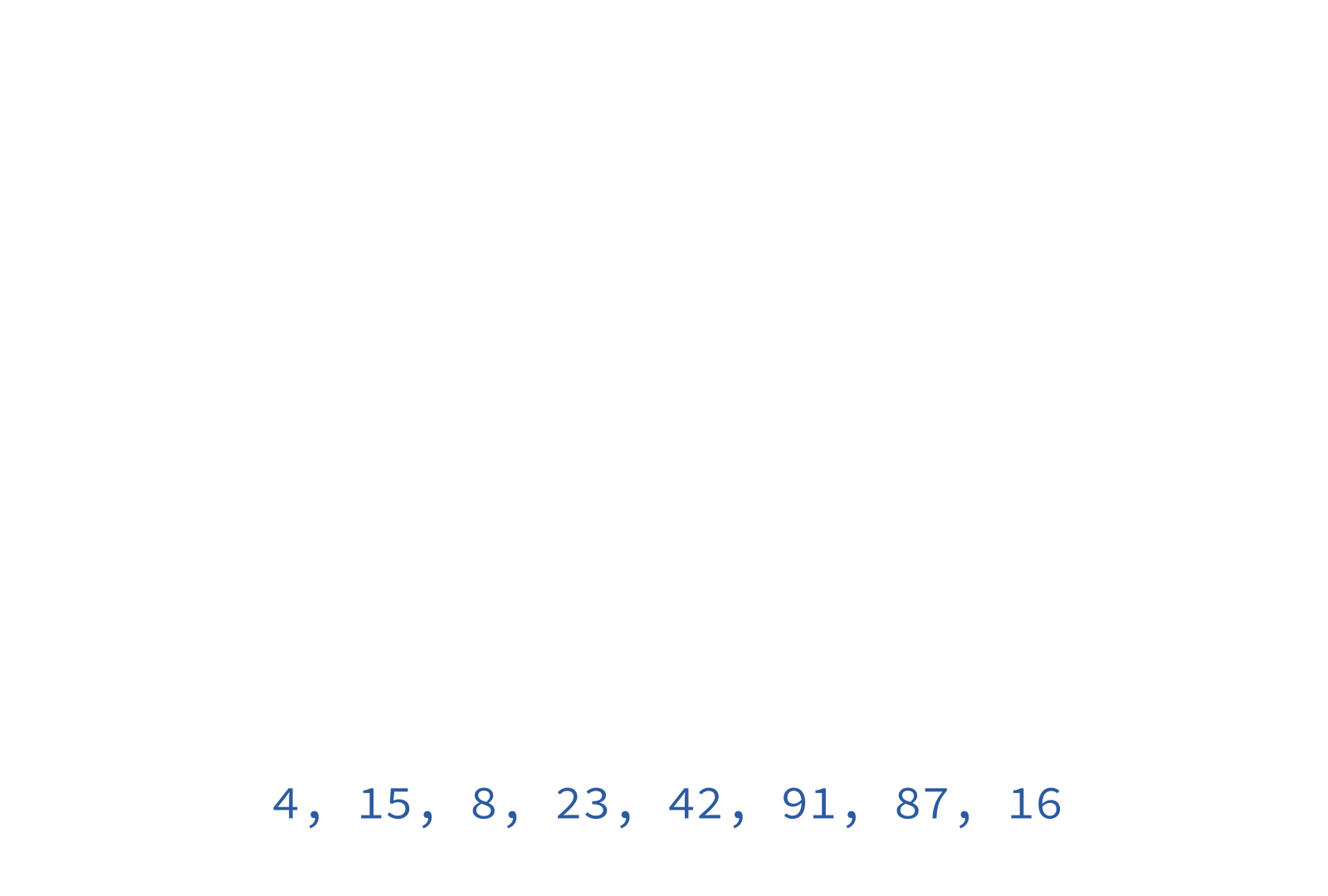
Inorder traversal
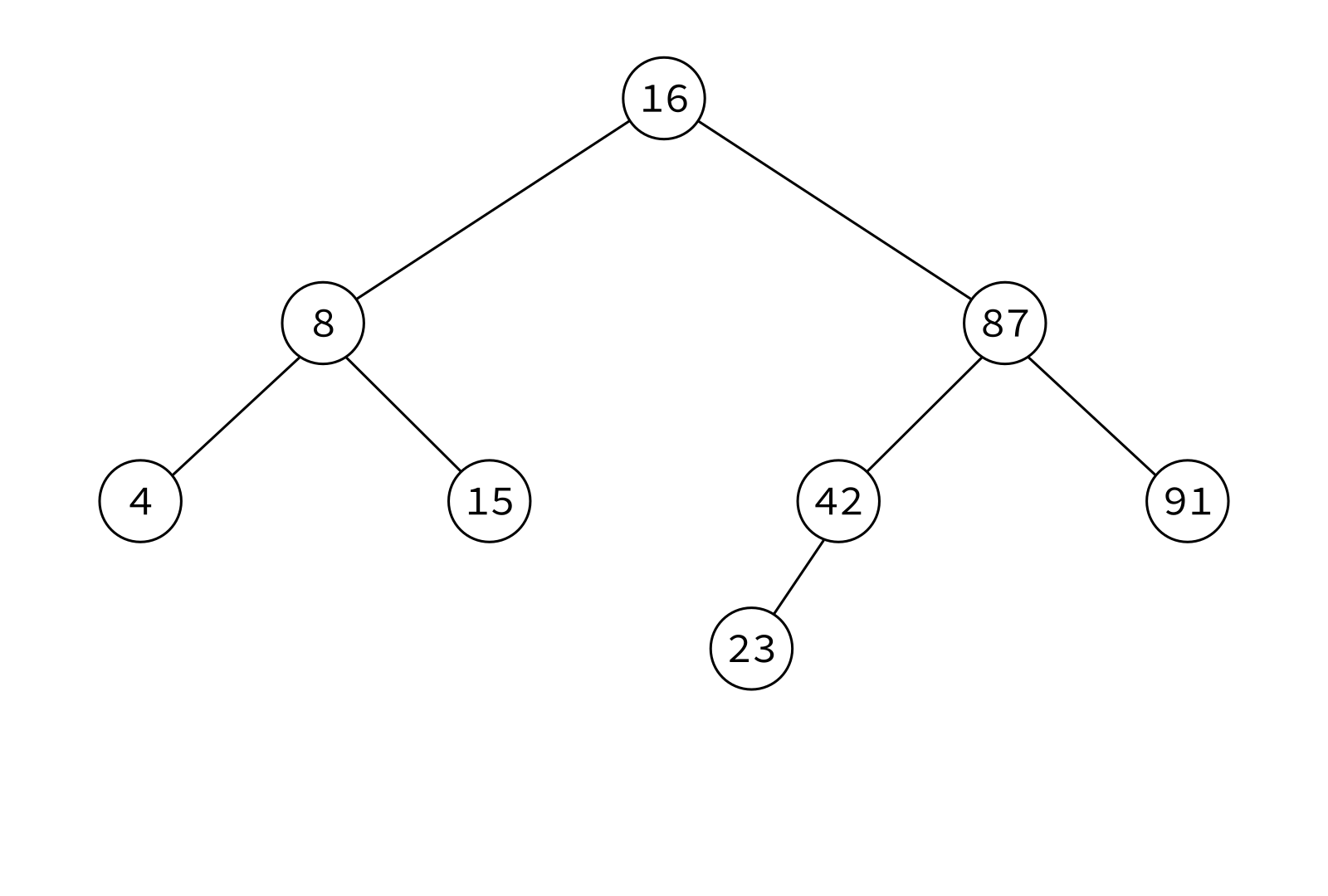
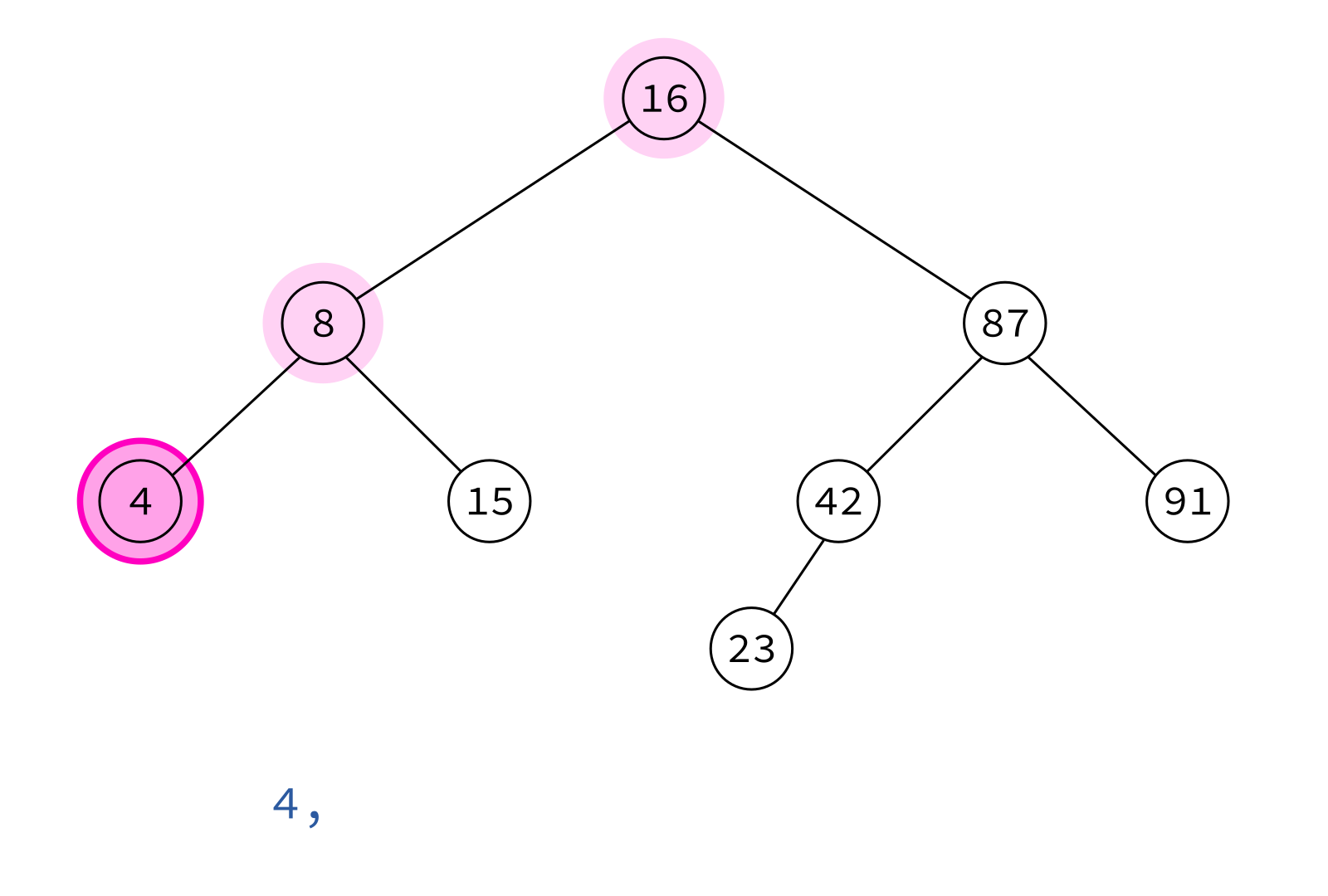
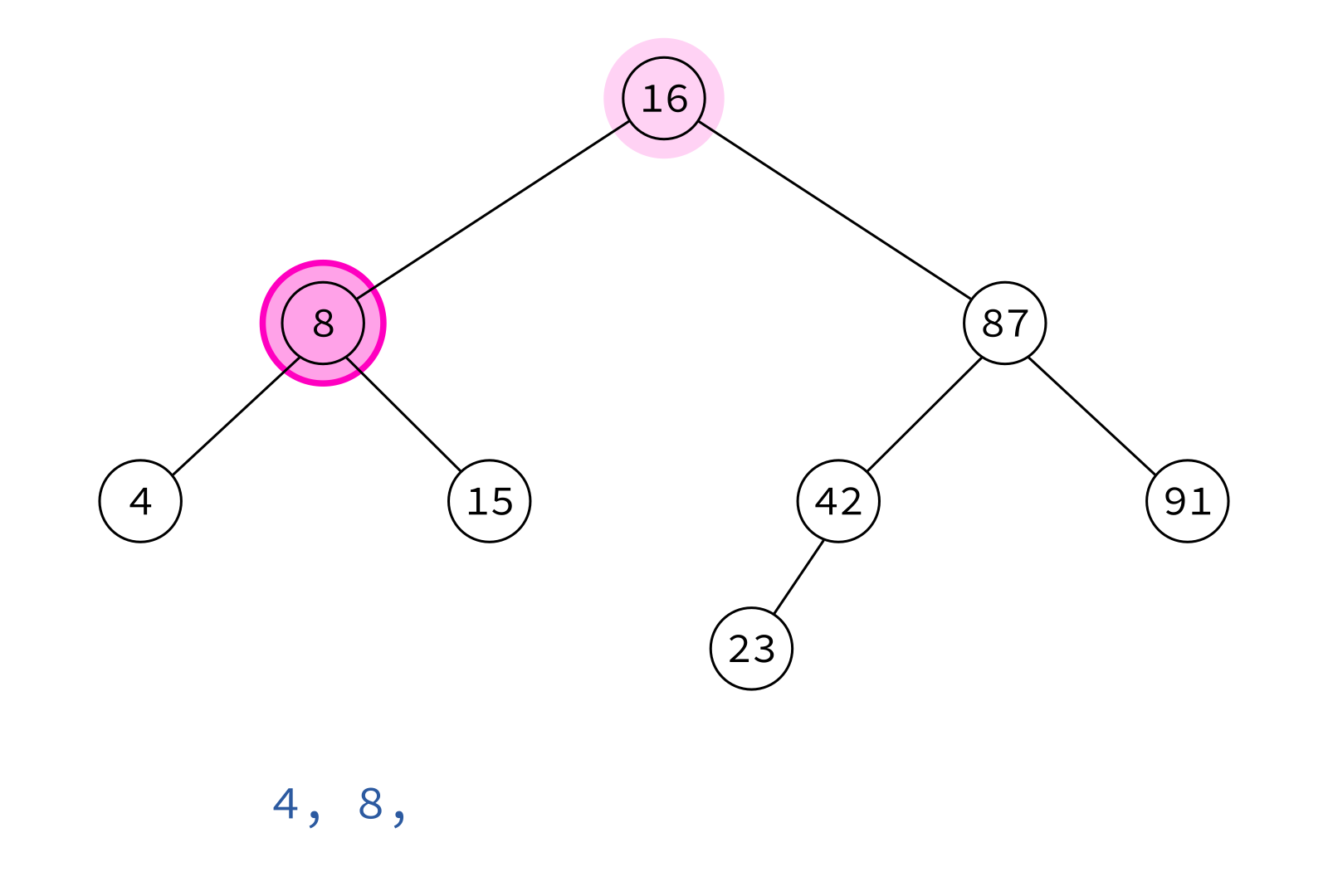
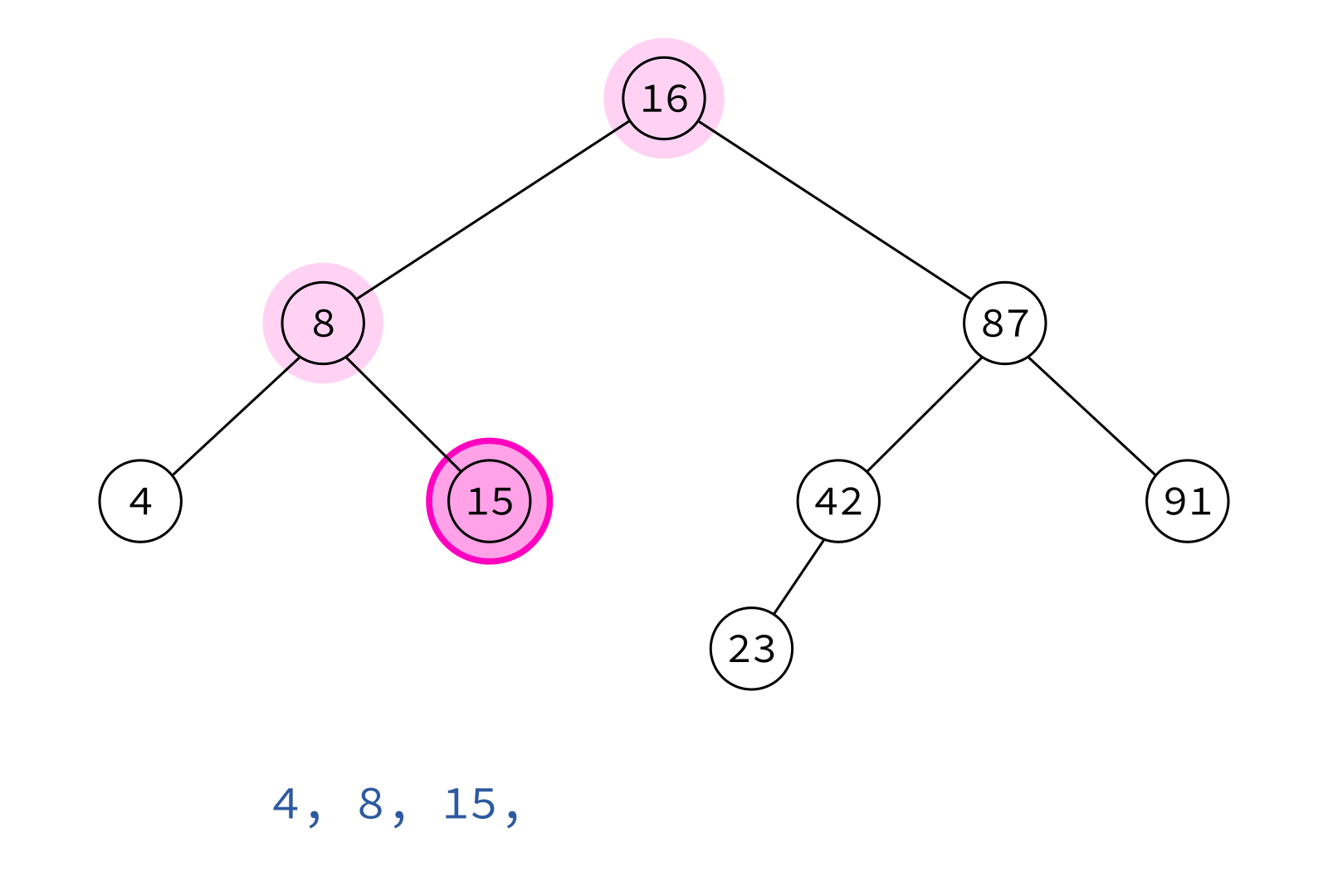
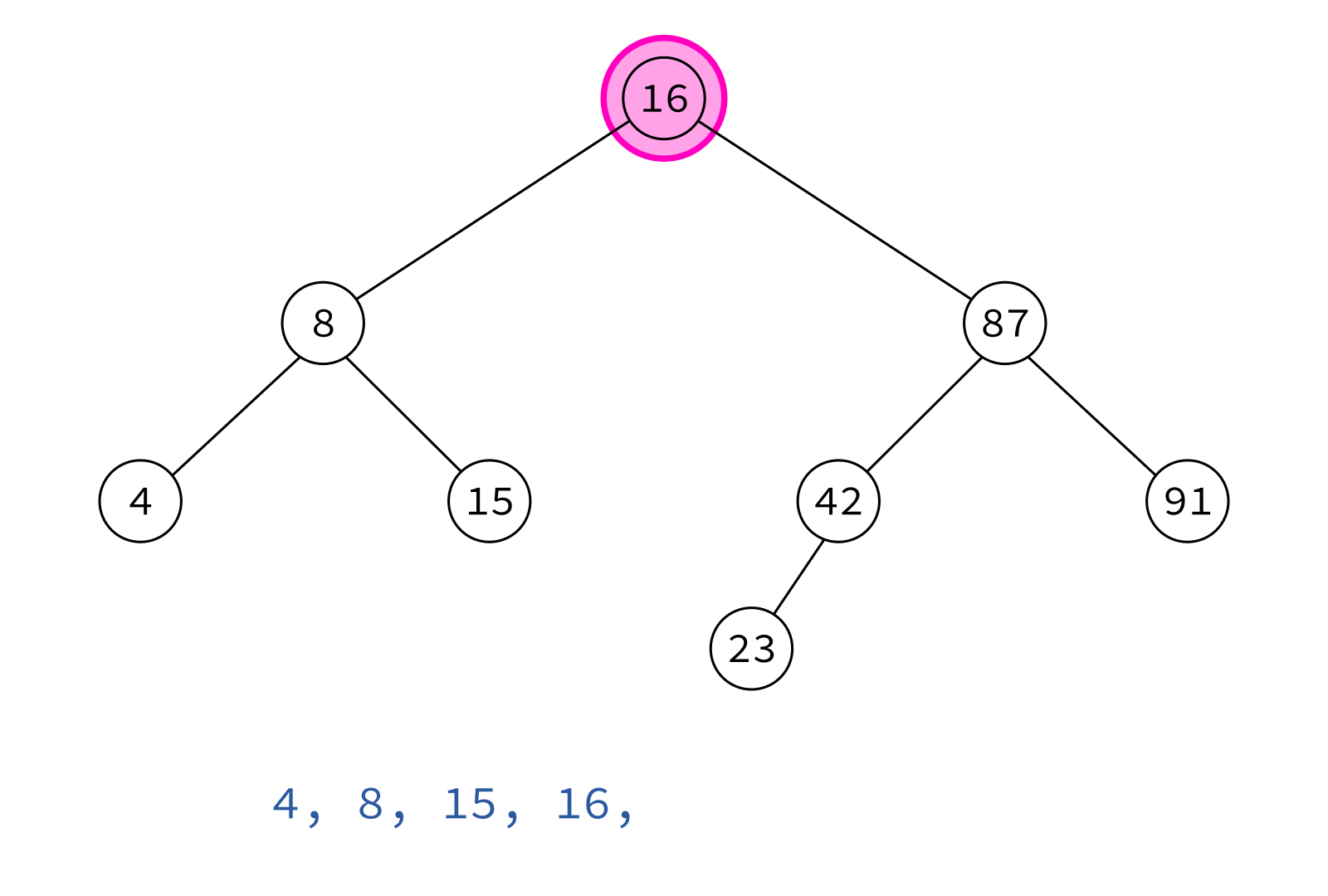
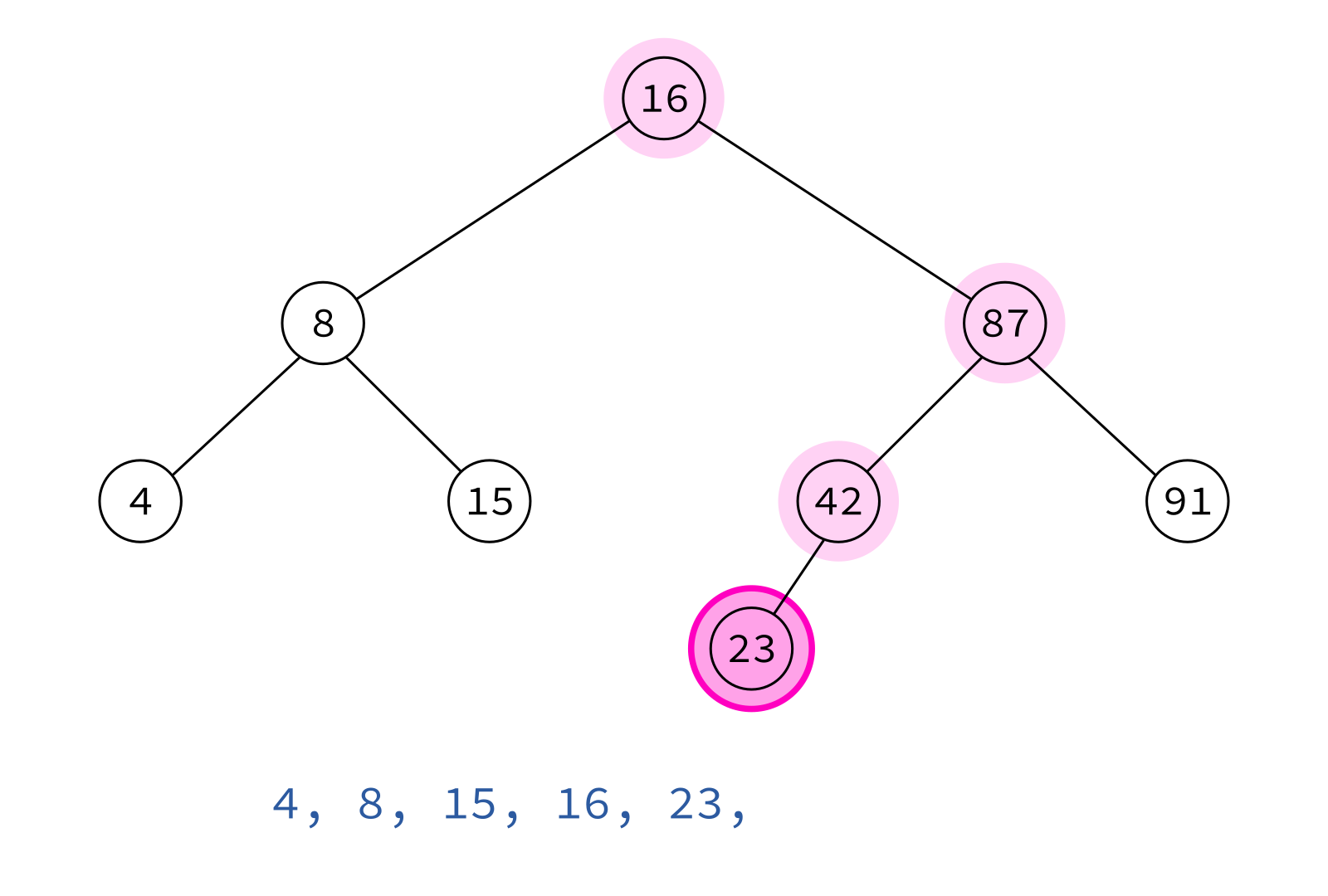
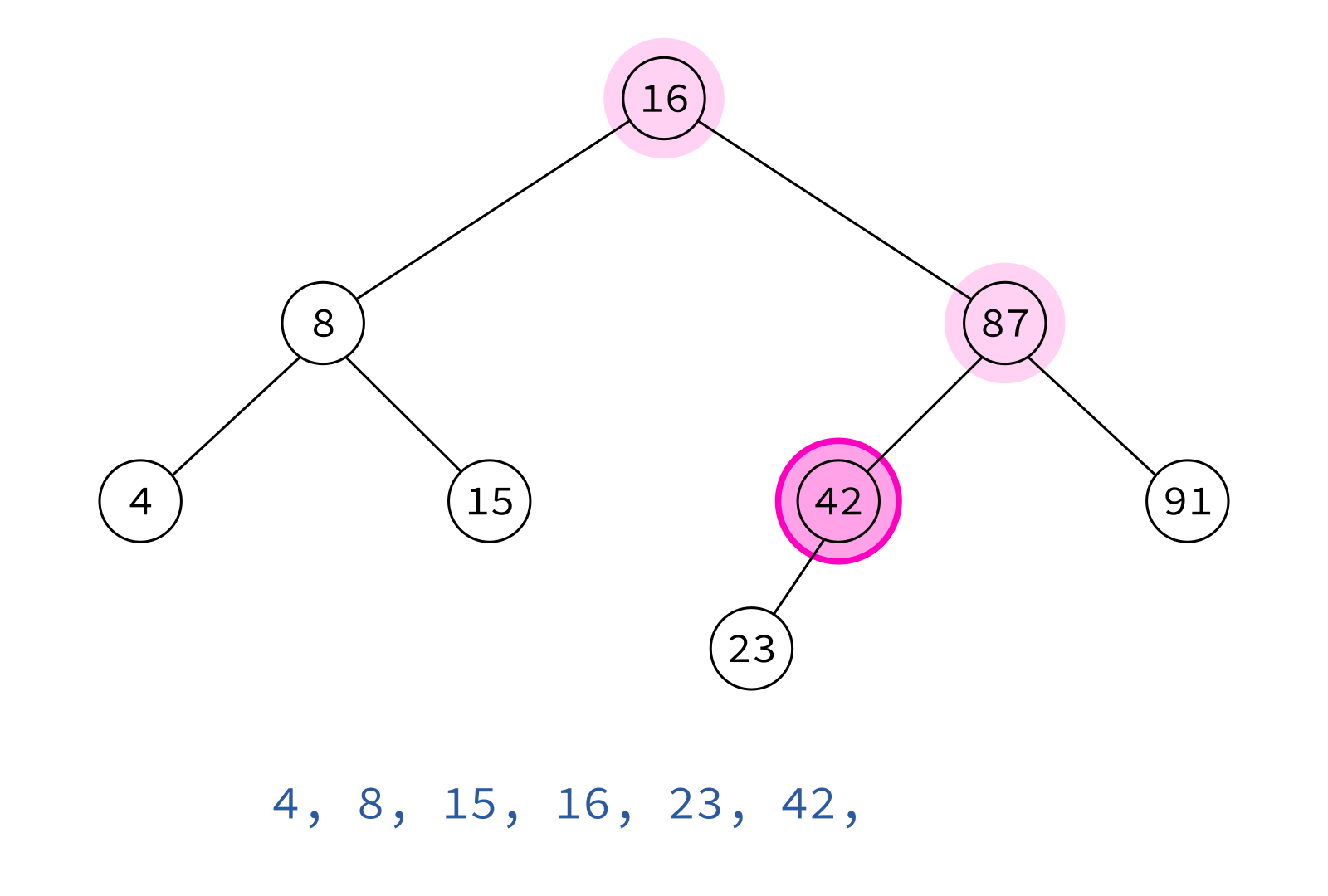
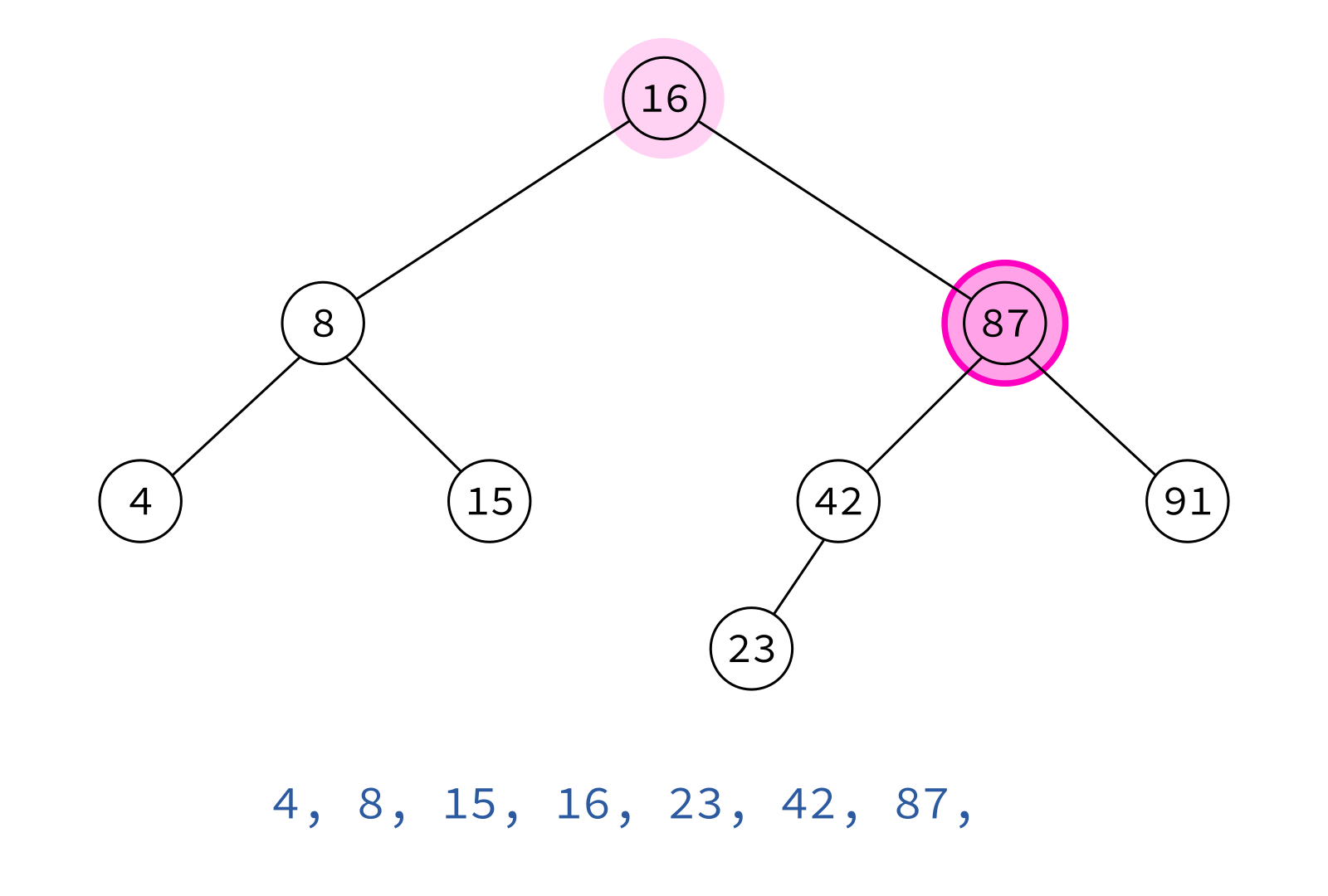
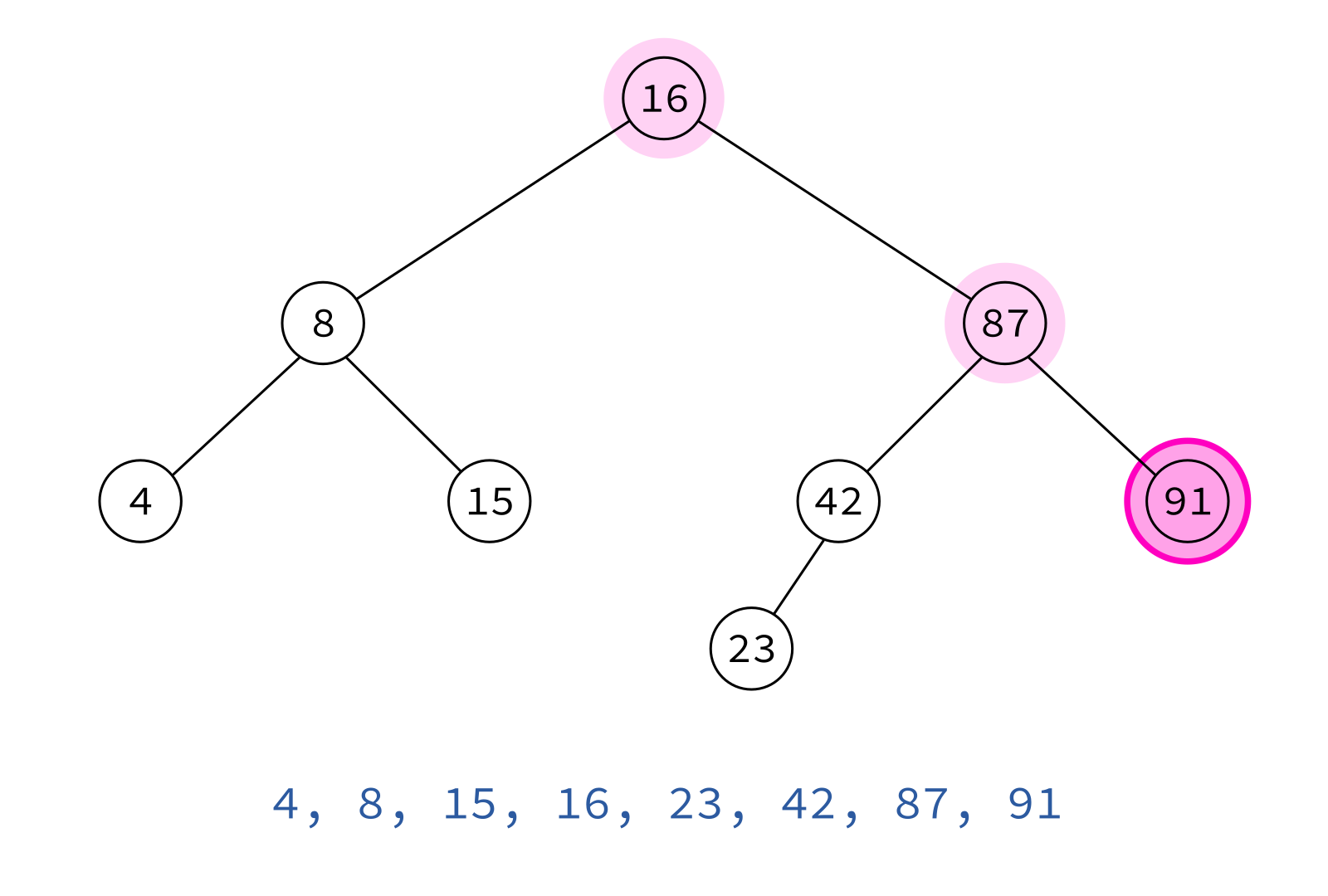
left, node, right
Inorder traversal
Typical use: Turn a BST into a sorted list of keys.
Last words on binary trees
- BSTS make a lot of data accessible in a few "hops" from the root.
- They are a good choice for mutable data structures involving search operations.
- Deletion of a node is an important feature we didn't implement. (Take MCS 360!)
- Unbalanced trees are less efficient.
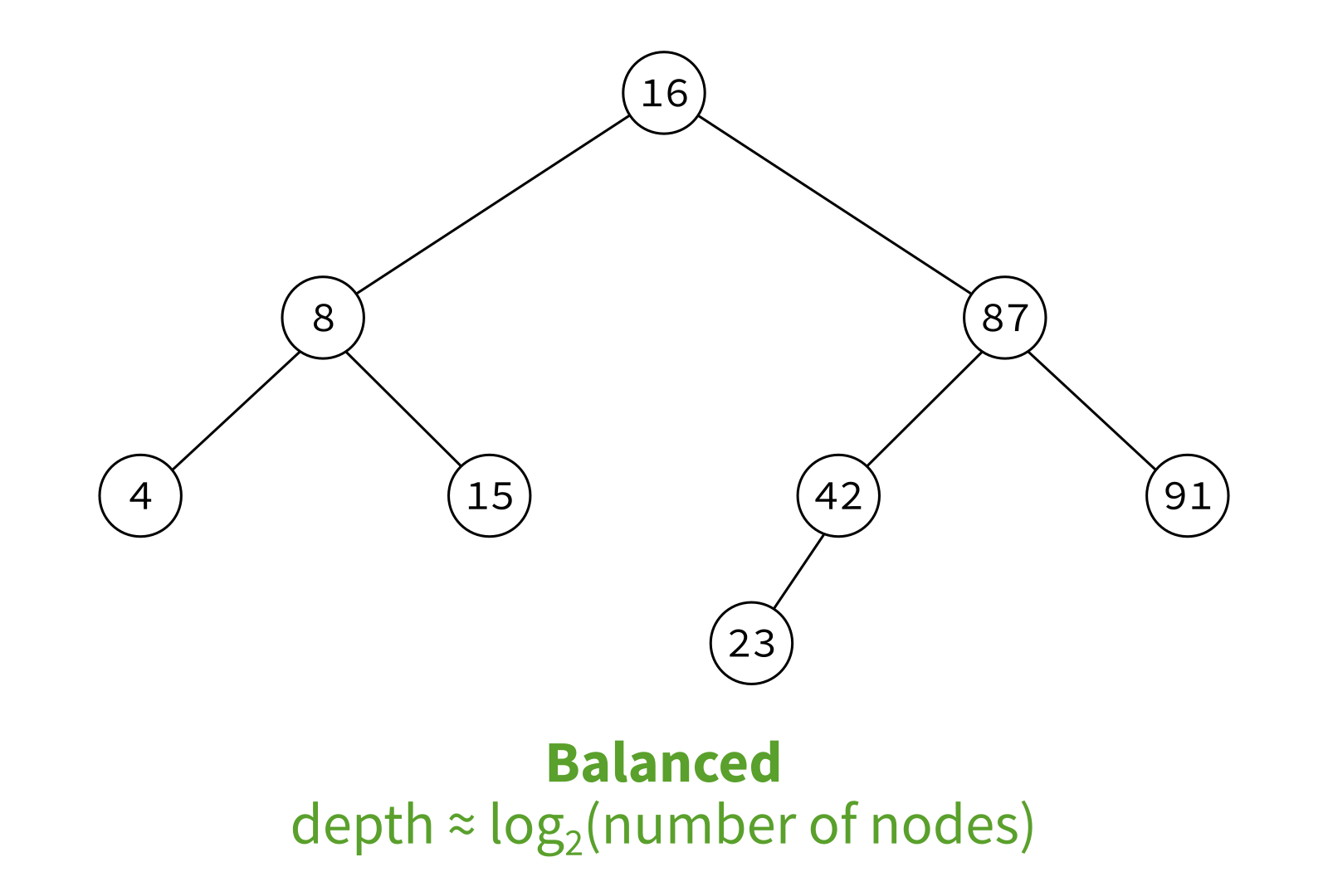
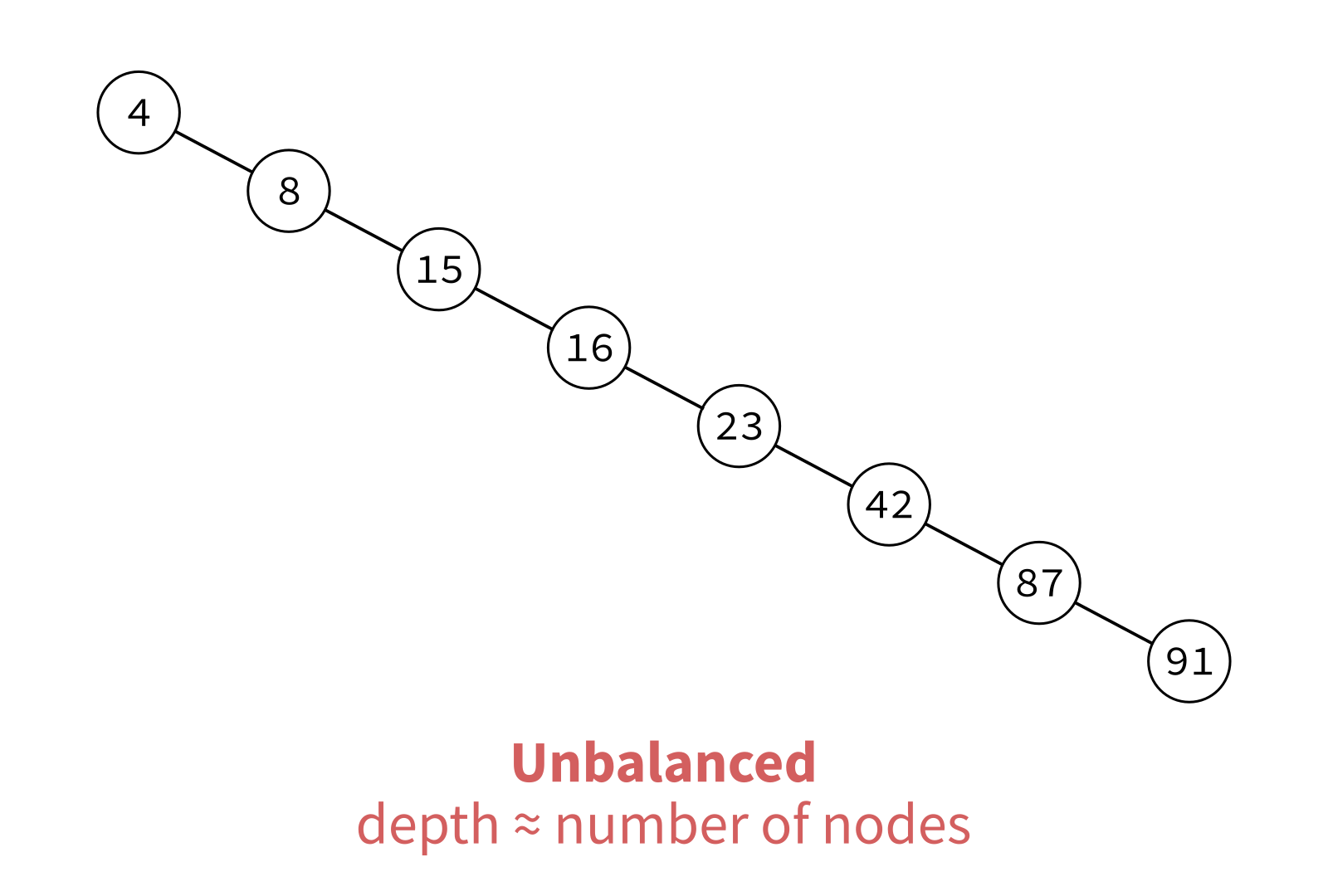
MCS 360 usually covers rebalancing operations.
Set
Python's built-in type set represents an unordered collection of distinct objects.
Elements can be any hashable object. This is the same restriction as dict keys. E.g.
Allowed: bool, int, float, str, tuple
Not allowed: list, set
Set usage
S = { 4, 8, 15, 16, 23, 42 } # Set literal
S = set() # New empty set
S.add(5) # S is {5}
S.add(10) # S is {5,10}
8 in S # False
5 in S # True
S.discard(1) # Does nothing
S.remove(1) # Raises KeyError
S.remove(5) # Now S is {10}
S.pop() # Remove and return one element
for x in S: # sets are iterable
print(x)
Set operations
Binary operations returning new sets:
S | S2 # Evaluates to union of sets
S & S2 # Evaluates to intersection of sets
S.union(iterable) # Like | but allows any iterable
S.intersection(iterable) # Like & but allows any iterable
Note: An earlier version of the slides claimed incorrectly that & and | allow arbitrary iterables. The methods .union and .intersection allow this, but the overloaded operators require the other operand to also be a set.
Set mutations
Operations that modify a set S based on contents of another collection.
# adds elements of iterable to S
S.update(iterable)
# remove anything from S that is NOT in the iterable
S.intersection_update(iterable)
# remove anything from S that is in the iterable
S.difference_update(iterable)
More about set
set has lots of other features that are described in the documentation.
Python's set is basically a dictionary without values.
For large collections, it is much faster than using a list.
Appropriate whenever order is not important, and items cannot appear multiple times.
Histogram
You want to know how many times each character appears in a string.
hist = dict()
for c in s:
hist[c] += 1This won't work. Why?
defaultdict
Built-in module collections contains a class defaultdict that works like a dictionary, but
if a key is requested that doesn't exist, it creates it and assigns a default value.
import collections
hist = collections.defaultdict(int)
for c in s:
hist[c] += 1This works!
The defaultdict constructor takes one argument, a function default_factory.
default_factory is called to make default values for keys when needed.
Common examples with built-in factories:
defaultdict(list) # default value [] as returned by list()
defaultdict(int) # default value 0, as returned by int()
defaultdict(float) # default value 0.0, as returned by float()
defaultdict(str) # default value "", as returned by str()References
-
In optional course texts:
- Problem Solving with Algorithms and Data Structures using Python by Miller and Ranum, discusses binary trees in Chapter 7.
- Lutz discusses sets in Chapter 5, in the subsection "Other Numeric Types" (even though there is nothing "numeric" about sets).
-
Elsewhere:
- Cormen, Leiserson, Rivest, and Stein discusses graph theory and trees in Appendices B.4 and B.5, and binary search trees in Chapter 12.
Revision history
- 2021-03-11 Correction: set operations & and | don't allow non-set iterables
- 2021-03-02 Initial publication